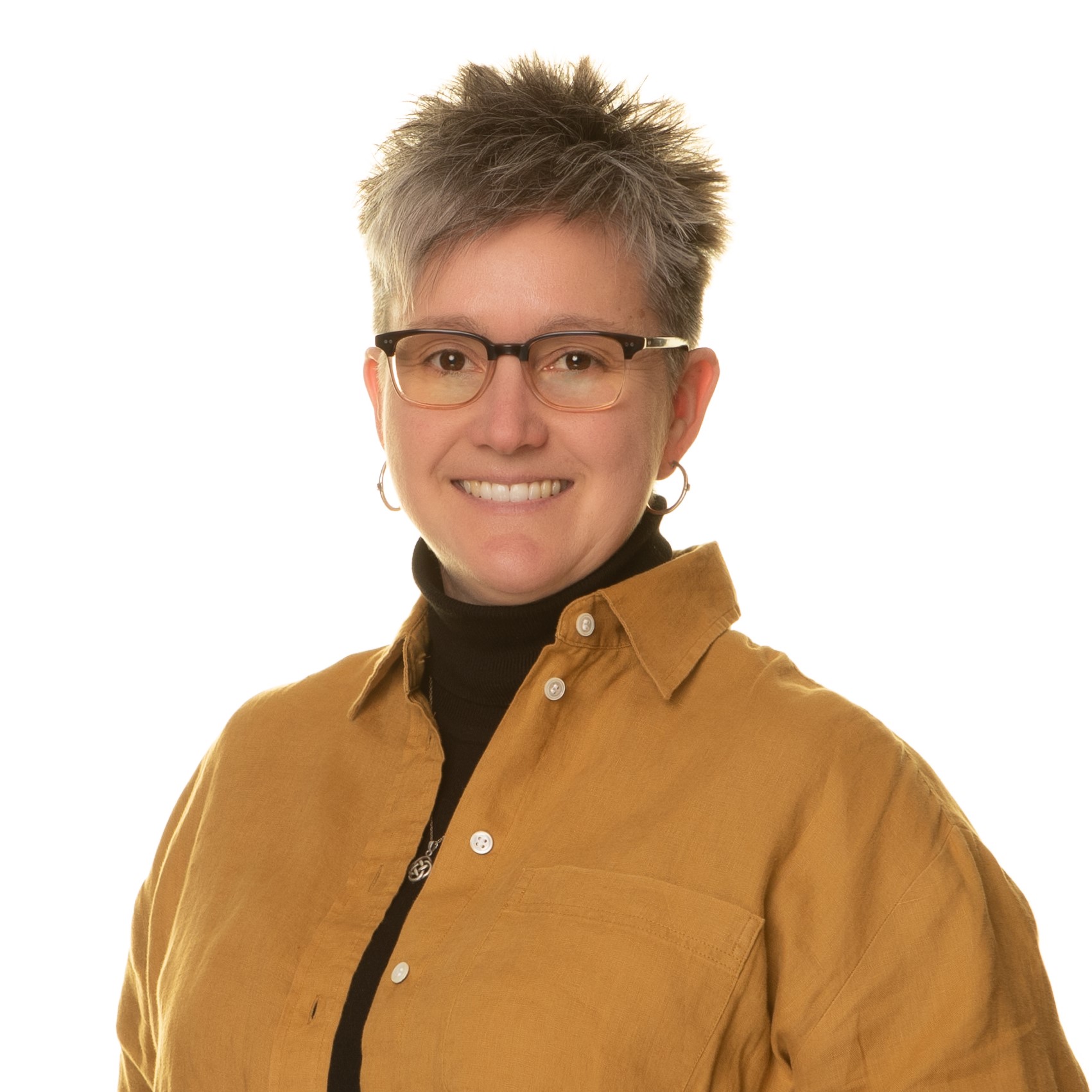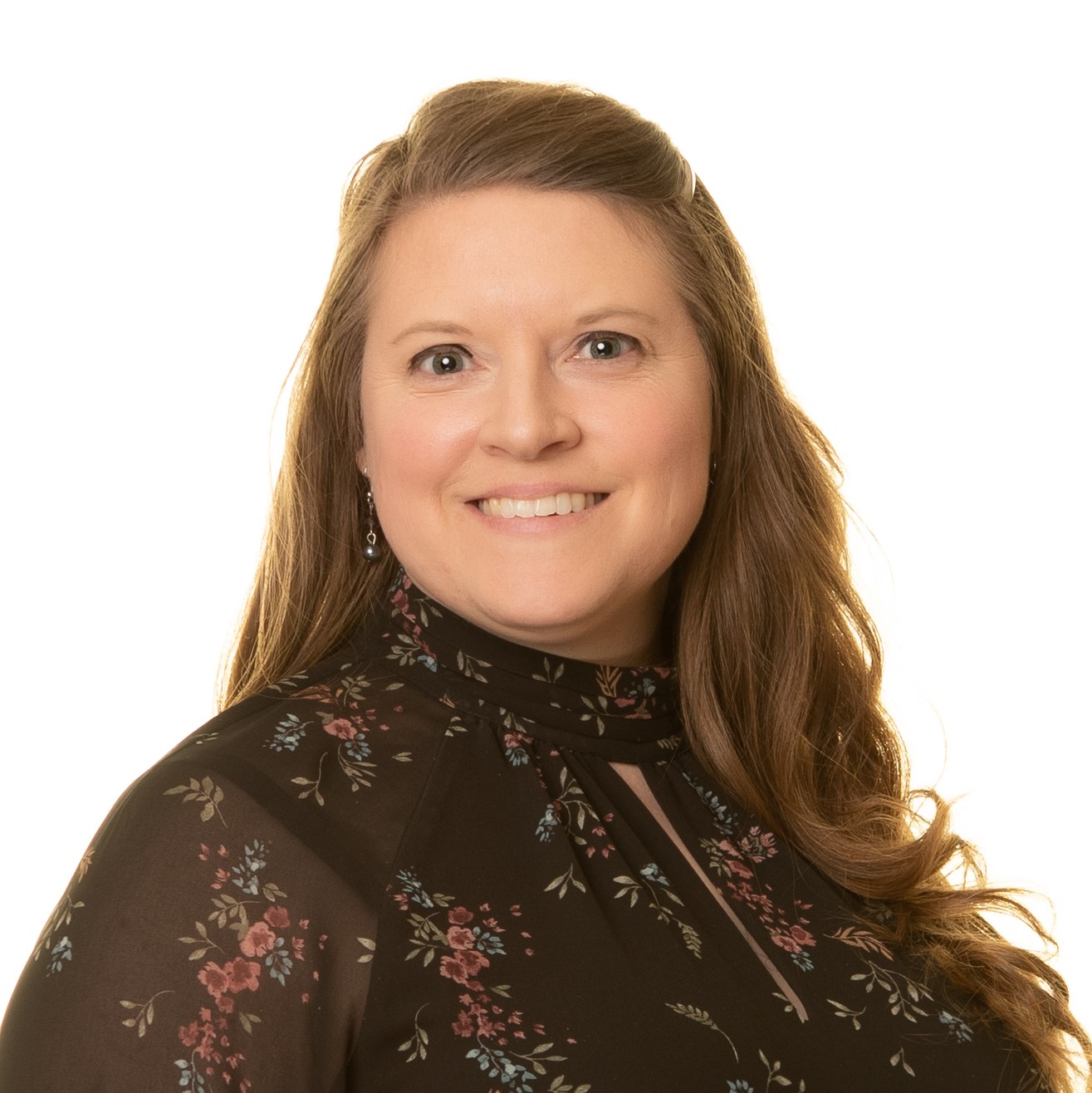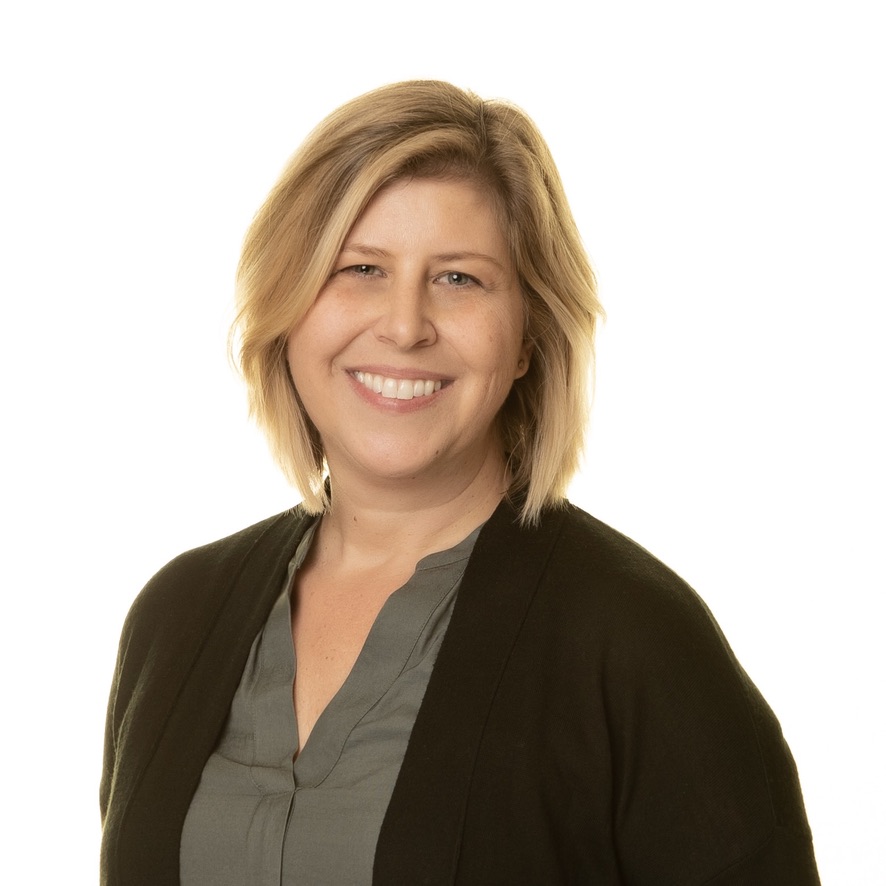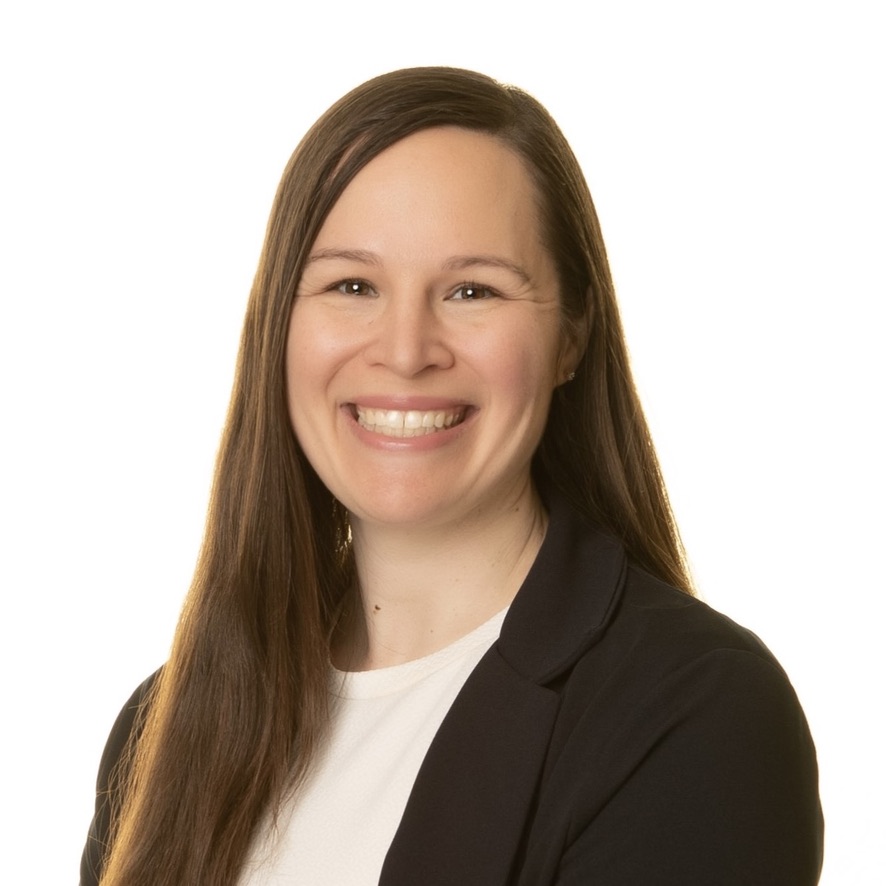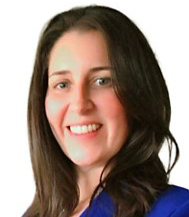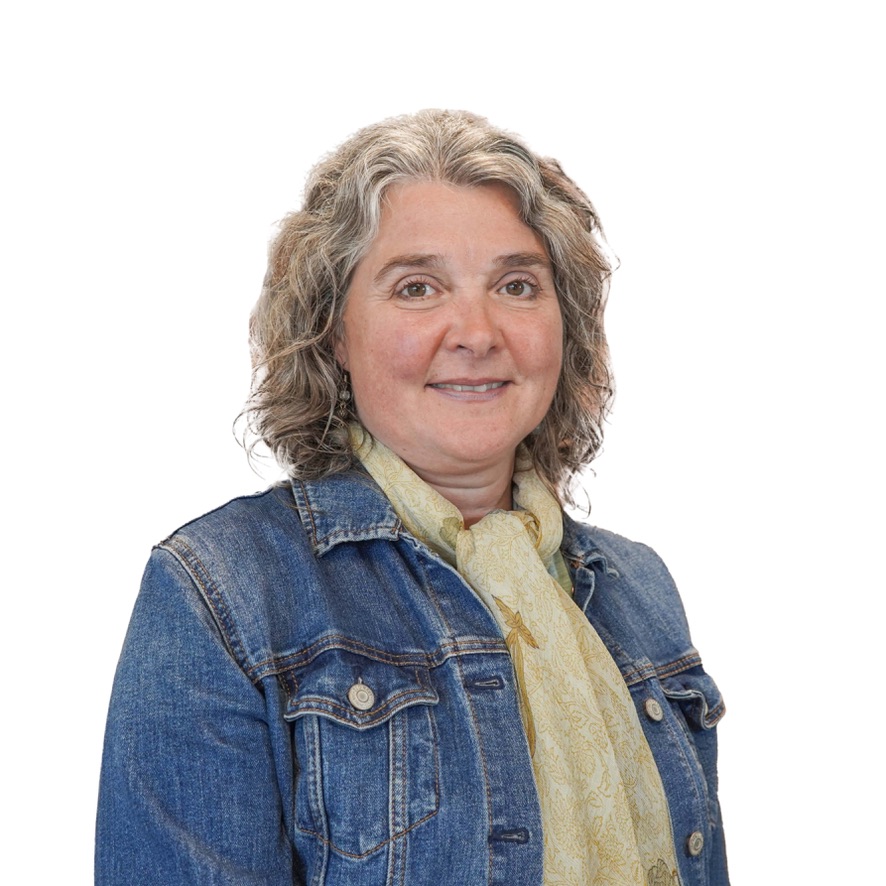Overview
Information Box Group
Learn More
Home to 200 family medicine residents and over 200 medical students each year
Learn More
Over 1,300 faculty members teaching across 12 geographic sites
Learn More
Broad engagement of faculty members and staff in research and scholarship supported by over $10 million in funding each year
Learn More
Over 40,000 patients served by the McMaster Family Health Team in 2 clinical teaching units in Hamilton
Information Box Group
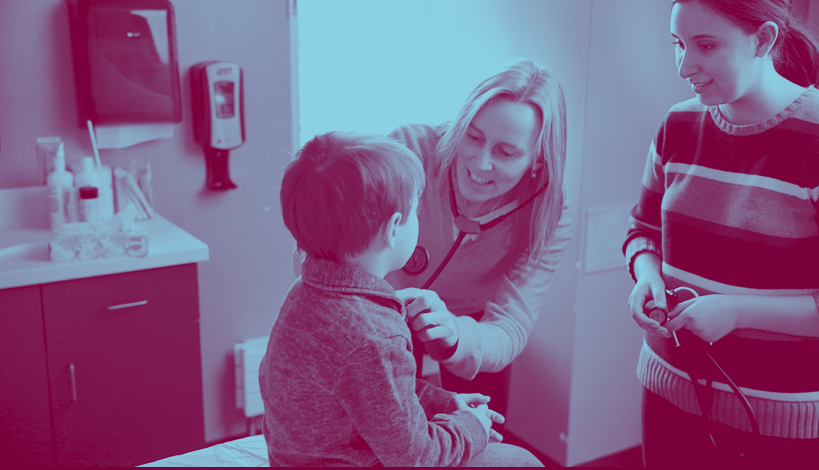
Our Mission
Together we serve, teach, discover:
Primary care for better health and a brighter world
Our Values
Honouring
We are committed to honouring and respecting others and ourselves.
Creative
We practice creative and courageous inquiry and action.
Generous
We engage one another with generous interdependence.
Strategic Anchors

We invite ideas
We foster an environment of curiosity and wonder. We offer faculty members resources and support to turn their wonderings into research that will answer important questions for all of us.
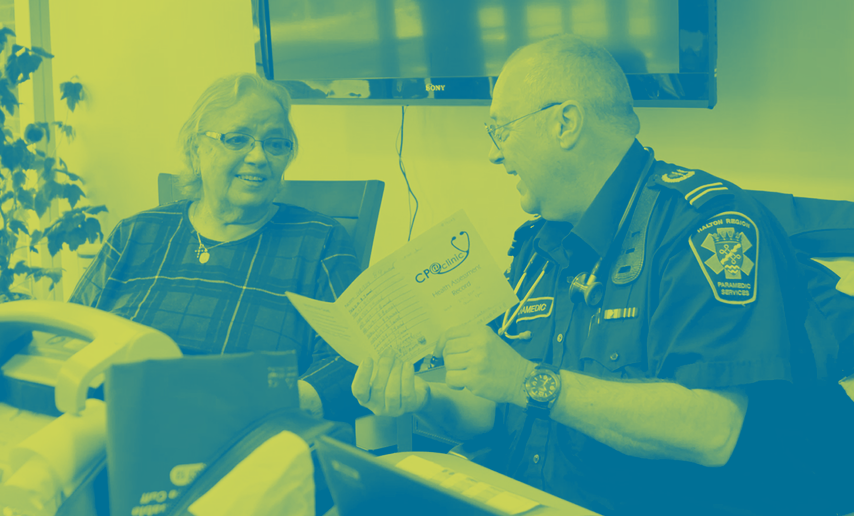
We are community connected
We have strong partnerships with primary care and health care partners to share knowledge, resources and extend programming where needed to the broader community.

We value primary care as an instrument of social change
Primary care is essential to continued health system improvement, person-centred care in communities, and optimal population health. We are committed to advocating for the essential role of primary care in the health care system.
Department Leadership
Chair's Office and Core Services
Cathy Risdon
MD, DMan, CCFP, FCFP
Professor & Chair
Dr. Cathy Risdon is Professor and Chair of the Department of Family Medicine at McMaster aiming to help reinvigorate a sustainable, inclusive learning and practice environment for current and future family medicine learners and providers. For Risdon, breaking down barriers and honouring different viewpoints is key to building a successful department capable of training top-quality family doctors and attracting skilled staff and faculty.
She was the first holder of the David Braley-Nancy Gordon Endowed Chair in Family Medicine, mandated to develop innovations in education, clinical service and research relating to the doctor-patient and interdisciplinary team relationships. She co-created the Michael G. DeGroote School of Medicine’s Professional Competency Curriculum, a two-year course to teach professionalism, communication skills, advocacy, ethics and reflective practice. Following the ten-year term of her Endowed Chair, she became Associate Chair, Academic within the Department of Family Medicine, as well as the co-lead for the McMaster Family Health Team.
Dr. Risdon has completed a Doctorate of Management in Organizational Change at the University of Hertfordshire where her research explored themes of excellence and improvisation within curriculum design and implementation. She has conducted training and consultations across North America for primary care and community-based agencies wishing to improve their capacity for effective team and interprofessional collaborations. Her expertise in facilitation was used to design and deliver on the successful Hamilton Health Team submission. She is an expert in health system integration and primary care and is one of three Canadians who has been inducted as a Fellow of the Academy of Communications in Healthcare in recognition of her contributions to curricular design and facilitation.
A McMaster graduate (class of ’92), Dr. Risdon’s clinical practice has included a varied inner-city population with a focus on vulnerable populations.
After more than 30 years in the Department of Family Medicine at McMaster, Dr. Risdon is still amazed at her good fortune in working with such terrific people. “We have extraordinary people engaged in our mission of service, teaching, and discovery. It’s my privilege to do all that I can to help them thrive.”
Tracey Carr
RN, BScN, MBA
Executive Director
Lecturer (Part-Time)
Tracey Carr is the Executive Director of the Department of Family Medicine at McMaster University, a capacity in which she provides leadership in the strategic and operational direction of education, research, clinical services and eHealth innovations of the Department. Tracey is a Registered Nurse with a Bachelor of Science in Nursing and a Master of Business Administration in Health Services Management from McMaster.
In her career, Tracey has collaborated effectively with diverse stakeholders and demonstrated skill in facilitating changes in process across systems, academic institutions and health care organizations. She was a founding member of the Senior Executive Team of the Trillium Gift of Life Network, an agency established by the Province of Ontario to promote and facilitate increased organ and tissue donation. As Administrative Director of McMaster’s School of Nursing, she was instrumental in strengthening collaboration within the Nursing Education Consortium comprised of McMaster University, Mohawk College and Conestoga College.
Since joining the Department of Family Medicine in 2010, Tracey’s leadership has been integral to its success through a time of great expansion in both education and research, and substantial changes in the local health system. In addition to optimizing the Department’s infrastructure and strengthening operations across all domains and sites, she has been a key leader in Health TAPESTRY and local care integration initiatives (e.g. Health Links and more recently the Hamilton Health Team). Tracey brings a strong voice and skill-set in digital health to system transformation opportunities, and is the Department’s primary liaison with industry partners collaborating on Family Medicine’s digital health innovations. These include:
- OSCAR, one of the most highly-adopted EMRs in Canada;
- CP@Clinic and CP@Home, technologies supporting the clinically proven Community Paramedicine Program led by Dr. Gina Agarwal;
- TaperMD, a tool supporting the proven approach of deprescribing led by Dr. Dee Mangin;
- kindredPHR, a platform designed to enable each person to have their own customizable space within an expanding digital health ecosystem in which they can connect the people and information that matter most to their health from their perspective; and
- FAST (Flu Automated Surveillance Tool), a tool integrated with OSCAR to facilitate capture of flu surveillance data that has been proven to mirror actual incidence of flu in the community.
Tracey believes passionately in the transformative potential of people working together for a common purpose. Her professional background in health and business administration, her leadership experience, and her skill in conceptualizing and implementing solutions to health and health system needs, together, enable her to make vital contributions to our Department, University and community.
Dale Guenter
MD, MPH
Professor Emeritus
Faculty Experience Director
Dale Guenter has experience in community-oriented primary care among populations living on the margins of society and the health system, including people in the inner city, remote northern communities, the Philippines, and people experiencing incarceration. He has been focused clinically on managing illness from blood-born pathogens, chronic pain, addiction and mental health issues. He has pursued teaching, research and program development relevant to all of these areas. The emphasis in all of his work is to learn new ways to be profoundly relationship-centred, equity-seeking, and system-improving. His clinical role is with Shelter Health Network in Hamilton. He works to humanize the experience family medicine faculty members in his role as the Faculty Experience Director.
Sarah Collier
HR Partner (on LOA)
Sarah Collier works with the People, Culture & Wellness team where she plans, evaluates, and continuously improves all human resources and labour relations activities for a diverse group of staff and faculty within the Department of Family Medicine.
As a true HR generalist, Sarah has the opportunity to provide great service and make an impact in a number of different areas – some of which include: employee relations; recruitment, selection and orientation; training and development; health and safety; human resources planning; and organizational development and culture.
Sarah received a Bachelor of Arts degree in History from McMaster University, and has a postgraduate certificate in Human Resources Management. She is a member of the Human Resources Professional Association of Ontario, and is a Certified Human Resources Professional.
When she’s not thinking about ways she can contribute to the overall HR strategy of the Department, she’s playing crokinole, going out and about, and collecting wonderful slices of happiness.
Jean Paul Bartha
BA, CHRL
HR Partner
In 2018, Jean Paul commenced his academic odyssey at the University, finding his place in the Faculty of Health Sciences HR Department. He journeyed through various HR roles, gaining expertise. In 2023, he ascended to HR Partner at DFM, balancing responsibilities under the guidance of the Executive Director of DFM and Assistant Director of Faculty of Health Sciences. Armed with a B.A. in Labour Studies from McMaster University and a Post Grad Certification in HR from Mohawk College, Jean Paul boasts over 10 years of HR mastery in telecommunications, healthcare, and education. Beyond work, he thrives in the sports realm, reveling in both participation and observation. Despite his seemingly French name, bilingualism remains elusive.
Natalie Illingworth
CPA/CGA, BAccS
Finance Manager
Natalie has worked for the Department of Family Medicine since 2015. She has been with the University since 2004 working in various areas including Research finance, Administration and the Faculty of Engineering. She loves various activities during her free time including stained glass, reading and lots of walks with her dog Jaxxon.
Casey Irvin
MA
Manager, Knowledge Translation and Strategic Communications
Casey Irvin works to amplify our department’s impact.
As the manager of knowledge translation and strategic communications at the department of family medicine (DFM), he supports faculty, staff and learners to help connect their ideas, research and purpose to key audiences.
Casey worked with DFM for six years as both a communications coordinator and as the department’s first knowledge translation specialist before joining the McMaster Institute for Research on Aging in 2021. Returning to DFM in 2024 (to cover a leave for Erin Beaulieu), Casey is a steadfast advocate for creating progressive, equitable improvements to health care through effective communication, knowledge mobilization and telling good stories.
He has a master’s degree in communications and cultural studies and over 15 years of communications experience in the health care, education and social services sectors.
Erin Beaulieu
RD, MPH
Manager, Knowledge Translation and Strategic Communications (on leave)
Erin Beaulieu has worked for the Department of Family Medicine since March 2019 as a Knowledge Translation (KT) Specialist and then moved into the role of KT and Strategic Communications Manager in February 2022. In this role, she provides leadership, guidance and support for targeted, responsive and effective KT and communications initiatives across all departmental domains to further strategic objectives, strengthen internal and external engagement, enable greater research impact by furthering the uptake of evidence into practice and policy. Prior to joining McMaster University, Erin worked as a Registered Dietitian in public health and supporting local food policy and programs in the provincial government. Erin holds a Bachelor of Applied Science in Applied Human Nutrition and a Masters of Public Health in Community Nutrition. When she’s not at work, Erin enjoys cooking, cycling, and cuddling with her cat, Ollie.

Erin Beaulieu
RD, MPH
Manager, Knowledge Translation and Strategic Communications (on leave)
Cathy Risdon
MD, DMan, CCFP, FCFP
Professor & Chair
Dr. Cathy Risdon is Professor and Chair of the Department of Family Medicine at McMaster aiming to help reinvigorate a sustainable, inclusive learning and practice environment for current and future family medicine learners and providers. For Risdon, breaking down barriers and honouring different viewpoints is key to building a successful department capable of training top-quality family doctors and attracting skilled staff and faculty.
She was the first holder of the David Braley-Nancy Gordon Endowed Chair in Family Medicine, mandated to develop innovations in education, clinical service and research relating to the doctor-patient and interdisciplinary team relationships. She co-created the Michael G. DeGroote School of Medicine’s Professional Competency Curriculum, a two-year course to teach professionalism, communication skills, advocacy, ethics and reflective practice. Following the ten-year term of her Endowed Chair, she became Associate Chair, Academic within the Department of Family Medicine, as well as the co-lead for the McMaster Family Health Team.
Dr. Risdon has completed a Doctorate of Management in Organizational Change at the University of Hertfordshire where her research explored themes of excellence and improvisation within curriculum design and implementation. She has conducted training and consultations across North America for primary care and community-based agencies wishing to improve their capacity for effective team and interprofessional collaborations. Her expertise in facilitation was used to design and deliver on the successful Hamilton Health Team submission. She is an expert in health system integration and primary care and is one of three Canadians who has been inducted as a Fellow of the Academy of Communications in Healthcare in recognition of her contributions to curricular design and facilitation.
A McMaster graduate (class of ’92), Dr. Risdon’s clinical practice has included a varied inner-city population with a focus on vulnerable populations.
After more than 30 years in the Department of Family Medicine at McMaster, Dr. Risdon is still amazed at her good fortune in working with such terrific people. “We have extraordinary people engaged in our mission of service, teaching, and discovery. It’s my privilege to do all that I can to help them thrive.”
Cathy Risdon
MD, DMan, CCFP, FCFP
Professor & Chair
Dr. Cathy Risdon is Professor and Chair of the Department of Family Medicine at McMaster aiming to help reinvigorate a sustainable, inclusive learning and practice environment for current and future family medicine learners and providers. For Risdon, breaking down barriers and honouring different viewpoints is key to building a successful department capable of training top-quality family doctors and attracting skilled staff and faculty.
She was the first holder of the David Braley-Nancy Gordon Endowed Chair in Family Medicine, mandated to develop innovations in education, clinical service and research relating to the doctor-patient and interdisciplinary team relationships. She co-created the Michael G. DeGroote School of Medicine’s Professional Competency Curriculum, a two-year course to teach professionalism, communication skills, advocacy, ethics and reflective practice. Following the ten-year term of her Endowed Chair, she became Associate Chair, Academic within the Department of Family Medicine, as well as the co-lead for the McMaster Family Health Team.
Dr. Risdon has completed a Doctorate of Management in Organizational Change at the University of Hertfordshire where her research explored themes of excellence and improvisation within curriculum design and implementation. She has conducted training and consultations across North America for primary care and community-based agencies wishing to improve their capacity for effective team and interprofessional collaborations. Her expertise in facilitation was used to design and deliver on the successful Hamilton Health Team submission. She is an expert in health system integration and primary care and is one of three Canadians who has been inducted as a Fellow of the Academy of Communications in Healthcare in recognition of her contributions to curricular design and facilitation.
A McMaster graduate (class of ’92), Dr. Risdon’s clinical practice has included a varied inner-city population with a focus on vulnerable populations.
After more than 30 years in the Department of Family Medicine at McMaster, Dr. Risdon is still amazed at her good fortune in working with such terrific people. “We have extraordinary people engaged in our mission of service, teaching, and discovery. It’s my privilege to do all that I can to help them thrive.”
Tracey Carr
RN, BScN, MBA
Executive Director
Lecturer (Part-Time)
Tracey Carr is the Executive Director of the Department of Family Medicine at McMaster University, a capacity in which she provides leadership in the strategic and operational direction of education, research, clinical services and eHealth innovations of the Department. Tracey is a Registered Nurse with a Bachelor of Science in Nursing and a Master of Business Administration in Health Services Management from McMaster.
In her career, Tracey has collaborated effectively with diverse stakeholders and demonstrated skill in facilitating changes in process across systems, academic institutions and health care organizations. She was a founding member of the Senior Executive Team of the Trillium Gift of Life Network, an agency established by the Province of Ontario to promote and facilitate increased organ and tissue donation. As Administrative Director of McMaster’s School of Nursing, she was instrumental in strengthening collaboration within the Nursing Education Consortium comprised of McMaster University, Mohawk College and Conestoga College.
Since joining the Department of Family Medicine in 2010, Tracey’s leadership has been integral to its success through a time of great expansion in both education and research, and substantial changes in the local health system. In addition to optimizing the Department’s infrastructure and strengthening operations across all domains and sites, she has been a key leader in Health TAPESTRY and local care integration initiatives (e.g. Health Links and more recently the Hamilton Health Team). Tracey brings a strong voice and skill-set in digital health to system transformation opportunities, and is the Department’s primary liaison with industry partners collaborating on Family Medicine’s digital health innovations. These include:
- OSCAR, one of the most highly-adopted EMRs in Canada;
- CP@Clinic and CP@Home, technologies supporting the clinically proven Community Paramedicine Program led by Dr. Gina Agarwal;
- TaperMD, a tool supporting the proven approach of deprescribing led by Dr. Dee Mangin;
- kindredPHR, a platform designed to enable each person to have their own customizable space within an expanding digital health ecosystem in which they can connect the people and information that matter most to their health from their perspective; and
- FAST (Flu Automated Surveillance Tool), a tool integrated with OSCAR to facilitate capture of flu surveillance data that has been proven to mirror actual incidence of flu in the community.
Tracey believes passionately in the transformative potential of people working together for a common purpose. Her professional background in health and business administration, her leadership experience, and her skill in conceptualizing and implementing solutions to health and health system needs, together, enable her to make vital contributions to our Department, University and community.
Tracey Carr
RN, BScN, MBA
Executive Director
Lecturer (Part-Time)
Tracey Carr is the Executive Director of the Department of Family Medicine at McMaster University, a capacity in which she provides leadership in the strategic and operational direction of education, research, clinical services and eHealth innovations of the Department. Tracey is a Registered Nurse with a Bachelor of Science in Nursing and a Master of Business Administration in Health Services Management from McMaster.
In her career, Tracey has collaborated effectively with diverse stakeholders and demonstrated skill in facilitating changes in process across systems, academic institutions and health care organizations. She was a founding member of the Senior Executive Team of the Trillium Gift of Life Network, an agency established by the Province of Ontario to promote and facilitate increased organ and tissue donation. As Administrative Director of McMaster’s School of Nursing, she was instrumental in strengthening collaboration within the Nursing Education Consortium comprised of McMaster University, Mohawk College and Conestoga College.
Since joining the Department of Family Medicine in 2010, Tracey’s leadership has been integral to its success through a time of great expansion in both education and research, and substantial changes in the local health system. In addition to optimizing the Department’s infrastructure and strengthening operations across all domains and sites, she has been a key leader in Health TAPESTRY and local care integration initiatives (e.g. Health Links and more recently the Hamilton Health Team). Tracey brings a strong voice and skill-set in digital health to system transformation opportunities, and is the Department’s primary liaison with industry partners collaborating on Family Medicine’s digital health innovations. These include:
- OSCAR, one of the most highly-adopted EMRs in Canada;
- CP@Clinic and CP@Home, technologies supporting the clinically proven Community Paramedicine Program led by Dr. Gina Agarwal;
- TaperMD, a tool supporting the proven approach of deprescribing led by Dr. Dee Mangin;
- kindredPHR, a platform designed to enable each person to have their own customizable space within an expanding digital health ecosystem in which they can connect the people and information that matter most to their health from their perspective; and
- FAST (Flu Automated Surveillance Tool), a tool integrated with OSCAR to facilitate capture of flu surveillance data that has been proven to mirror actual incidence of flu in the community.
Tracey believes passionately in the transformative potential of people working together for a common purpose. Her professional background in health and business administration, her leadership experience, and her skill in conceptualizing and implementing solutions to health and health system needs, together, enable her to make vital contributions to our Department, University and community.
Dale Guenter
MD, MPH
Professor Emeritus
Faculty Experience Director
Dale Guenter has experience in community-oriented primary care among populations living on the margins of society and the health system, including people in the inner city, remote northern communities, the Philippines, and people experiencing incarceration. He has been focused clinically on managing illness from blood-born pathogens, chronic pain, addiction and mental health issues. He has pursued teaching, research and program development relevant to all of these areas. The emphasis in all of his work is to learn new ways to be profoundly relationship-centred, equity-seeking, and system-improving. His clinical role is with Shelter Health Network in Hamilton. He works to humanize the experience family medicine faculty members in his role as the Faculty Experience Director.
Dale Guenter
MD, MPH
Professor Emeritus
Faculty Experience Director
Dale Guenter has experience in community-oriented primary care among populations living on the margins of society and the health system, including people in the inner city, remote northern communities, the Philippines, and people experiencing incarceration. He has been focused clinically on managing illness from blood-born pathogens, chronic pain, addiction and mental health issues. He has pursued teaching, research and program development relevant to all of these areas. The emphasis in all of his work is to learn new ways to be profoundly relationship-centred, equity-seeking, and system-improving. His clinical role is with Shelter Health Network in Hamilton. He works to humanize the experience family medicine faculty members in his role as the Faculty Experience Director.
Sarah Collier
HR Partner (on LOA)
Sarah Collier works with the People, Culture & Wellness team where she plans, evaluates, and continuously improves all human resources and labour relations activities for a diverse group of staff and faculty within the Department of Family Medicine.
As a true HR generalist, Sarah has the opportunity to provide great service and make an impact in a number of different areas – some of which include: employee relations; recruitment, selection and orientation; training and development; health and safety; human resources planning; and organizational development and culture.
Sarah received a Bachelor of Arts degree in History from McMaster University, and has a postgraduate certificate in Human Resources Management. She is a member of the Human Resources Professional Association of Ontario, and is a Certified Human Resources Professional.
When she’s not thinking about ways she can contribute to the overall HR strategy of the Department, she’s playing crokinole, going out and about, and collecting wonderful slices of happiness.
Sarah Collier
HR Partner (on LOA)
Sarah Collier works with the People, Culture & Wellness team where she plans, evaluates, and continuously improves all human resources and labour relations activities for a diverse group of staff and faculty within the Department of Family Medicine.
As a true HR generalist, Sarah has the opportunity to provide great service and make an impact in a number of different areas – some of which include: employee relations; recruitment, selection and orientation; training and development; health and safety; human resources planning; and organizational development and culture.
Sarah received a Bachelor of Arts degree in History from McMaster University, and has a postgraduate certificate in Human Resources Management. She is a member of the Human Resources Professional Association of Ontario, and is a Certified Human Resources Professional.
When she’s not thinking about ways she can contribute to the overall HR strategy of the Department, she’s playing crokinole, going out and about, and collecting wonderful slices of happiness.
Jean Paul Bartha
BA, CHRL
HR Partner
In 2018, Jean Paul commenced his academic odyssey at the University, finding his place in the Faculty of Health Sciences HR Department. He journeyed through various HR roles, gaining expertise. In 2023, he ascended to HR Partner at DFM, balancing responsibilities under the guidance of the Executive Director of DFM and Assistant Director of Faculty of Health Sciences. Armed with a B.A. in Labour Studies from McMaster University and a Post Grad Certification in HR from Mohawk College, Jean Paul boasts over 10 years of HR mastery in telecommunications, healthcare, and education. Beyond work, he thrives in the sports realm, reveling in both participation and observation. Despite his seemingly French name, bilingualism remains elusive.
Jean Paul Bartha
BA, CHRL
HR Partner
In 2018, Jean Paul commenced his academic odyssey at the University, finding his place in the Faculty of Health Sciences HR Department. He journeyed through various HR roles, gaining expertise. In 2023, he ascended to HR Partner at DFM, balancing responsibilities under the guidance of the Executive Director of DFM and Assistant Director of Faculty of Health Sciences. Armed with a B.A. in Labour Studies from McMaster University and a Post Grad Certification in HR from Mohawk College, Jean Paul boasts over 10 years of HR mastery in telecommunications, healthcare, and education. Beyond work, he thrives in the sports realm, reveling in both participation and observation. Despite his seemingly French name, bilingualism remains elusive.
Natalie Illingworth
CPA/CGA, BAccS
Finance Manager
Natalie has worked for the Department of Family Medicine since 2015. She has been with the University since 2004 working in various areas including Research finance, Administration and the Faculty of Engineering. She loves various activities during her free time including stained glass, reading and lots of walks with her dog Jaxxon.
Natalie Illingworth
CPA/CGA, BAccS
Finance Manager
Natalie has worked for the Department of Family Medicine since 2015. She has been with the University since 2004 working in various areas including Research finance, Administration and the Faculty of Engineering. She loves various activities during her free time including stained glass, reading and lots of walks with her dog Jaxxon.
Casey Irvin
MA
Manager, Knowledge Translation and Strategic Communications
Casey Irvin works to amplify our department’s impact.
As the manager of knowledge translation and strategic communications at the department of family medicine (DFM), he supports faculty, staff and learners to help connect their ideas, research and purpose to key audiences.
Casey worked with DFM for six years as both a communications coordinator and as the department’s first knowledge translation specialist before joining the McMaster Institute for Research on Aging in 2021. Returning to DFM in 2024 (to cover a leave for Erin Beaulieu), Casey is a steadfast advocate for creating progressive, equitable improvements to health care through effective communication, knowledge mobilization and telling good stories.
He has a master’s degree in communications and cultural studies and over 15 years of communications experience in the health care, education and social services sectors.
Casey Irvin
MA
Manager, Knowledge Translation and Strategic Communications
Casey Irvin works to amplify our department’s impact.
As the manager of knowledge translation and strategic communications at the department of family medicine (DFM), he supports faculty, staff and learners to help connect their ideas, research and purpose to key audiences.
Casey worked with DFM for six years as both a communications coordinator and as the department’s first knowledge translation specialist before joining the McMaster Institute for Research on Aging in 2021. Returning to DFM in 2024 (to cover a leave for Erin Beaulieu), Casey is a steadfast advocate for creating progressive, equitable improvements to health care through effective communication, knowledge mobilization and telling good stories.
He has a master’s degree in communications and cultural studies and over 15 years of communications experience in the health care, education and social services sectors.
Erin Beaulieu
RD, MPH
Manager, Knowledge Translation and Strategic Communications (on leave)
Erin Beaulieu has worked for the Department of Family Medicine since March 2019 as a Knowledge Translation (KT) Specialist and then moved into the role of KT and Strategic Communications Manager in February 2022. In this role, she provides leadership, guidance and support for targeted, responsive and effective KT and communications initiatives across all departmental domains to further strategic objectives, strengthen internal and external engagement, enable greater research impact by furthering the uptake of evidence into practice and policy. Prior to joining McMaster University, Erin worked as a Registered Dietitian in public health and supporting local food policy and programs in the provincial government. Erin holds a Bachelor of Applied Science in Applied Human Nutrition and a Masters of Public Health in Community Nutrition. When she’s not at work, Erin enjoys cooking, cycling, and cuddling with her cat, Ollie.
Erin Beaulieu
RD, MPH
Manager, Knowledge Translation and Strategic Communications (on leave)
Erin Beaulieu has worked for the Department of Family Medicine since March 2019 as a Knowledge Translation (KT) Specialist and then moved into the role of KT and Strategic Communications Manager in February 2022. In this role, she provides leadership, guidance and support for targeted, responsive and effective KT and communications initiatives across all departmental domains to further strategic objectives, strengthen internal and external engagement, enable greater research impact by furthering the uptake of evidence into practice and policy. Prior to joining McMaster University, Erin worked as a Registered Dietitian in public health and supporting local food policy and programs in the provincial government. Erin holds a Bachelor of Applied Science in Applied Human Nutrition and a Masters of Public Health in Community Nutrition. When she’s not at work, Erin enjoys cooking, cycling, and cuddling with her cat, Ollie.
Education
Sarah Kinzie
BSc, MD, CCFP, FCFP
Associate Professor
Associate Chair, Education
Sarah Kinzie is an associate professor in the Department of Family Medicine at McMaster University. She is currently the Postgraduate Program Director for Family Medicine, a position she has held since 2015.
Dr. Kinzie joined the Department of Family Medicine in January 2000 after completing her undergraduate and postgraduate medical training here at McMaster University. She practices at Stonechurch Family Health Centre where she provides comprehensive care for a diverse patient population, in an interprofessional team-based model of care. Dr. Kinzie provided full-care obstetrics and neonatal care during her first 12 years in practice, and remains passionate about women’s health. Other areas of clinical interest include palliative care as well as home-based care for her frail elderly patients.
Dr. Kinzie’s primary academic focus lies in postgraduate medical education. As the former Hamilton Site Director (2009-2015), she led a number of curriculum innovations, including development of a unique, family medicine-led Maternal Child rotation for Hamilton residents, focused on interprofessional teaching of a comprehensive family medicine skill set in a family-centred model of care. Dr. Kinzie was also responsible for the creation of “Block 7”, an innovative, common, integrated Family Medicine-Academic block for all family medicine residents.
From 2005-2015, Dr. Kinzie served as National Director of the Residency Practice-Based Learning Program, (a program administered by the McMaster-affiliated, non-profit Foundation for Medical Practice Education). That involvement supported numerous research and faculty development initiatives that explore how physicians learn and change, with a focus on supporting the transition from residency to practice.
In her current role as Postgraduate Program Director, Dr. Kinzie oversees the training of over 200 family medicine residents distributed across 12 sites. In addition to curriculum development, her primary academic interests include relationship-centred care and teaching, effective learning and remediation strategies, and professional identity development.
Heather Waters
BPE, MD, CCFP, FCFP
Associate Professor
Postgraduate Program Director
Dr. Heather Waters is an Associate Professor in the Department of Family Medicine at McMaster University and has been with the Department since 2000.
Dr. Waters is the Postgraduate Program Director, responsible for leading McMaster’s Family Medicine Residency Training Program across its distributed network of sites. She previously provided educational leadership in Family Medicine in the roles of Hamilton Site Director and Education Coordinator (Stonechurch Family Health Centre).
Dr. Waters works closely with program and CFPC leads in curriculum renewal through the Outcomes of Training Project (OTP). As a member of the CFPC’s Postgraduate Education Committee (PGEC), she contributes to the development of resources to support Family Medicine programs and program directors.
Dr. Waters was McMaster’s former PGME Director of Academic Performance Support and Chair of the Education Advisory Board. In these roles she provided consultation and support to residency programs, program directors, and residents in situation of learner academic difficulty and remediation. She was a founding member of the National Collaboration of Remediation Leads in 2021.
As a member of the Section of Medicine Professionalism Committee and the Professionalism in Practice Working Group at McMaster, Dr. Waters contributes to the development of tools and processes to support professionalism development for learners and faculty. As a member of the CanMeds2025 Expert Working Group on the Professional role, she is contributing to updated postgraduate competency expectations related to professionalism and professional identity formation.
Dr. Waters has a keen interest in medical education and scholarship, particularly related to postgraduate training, generalism and family medicine, professionalism and professional identity formation, humanism and the humanities in medicine, physician and resident wellness, physician leadership, and academic performance support/remediation. She is a member of McMaster’s Education Research, Innovation and Theory (MERIT) Program.
Dr. Waters has had longstanding involvement with the Foundation for Medical Practice Education and the Practice-based Small Group Learning Program (PBSG) as a board member, co-editor, author, peer and resident group facilitator.
As an expert generalist and member of the McMaster Family Health Team, Dr. Waters is actively involved in inter-professional team-based practice and education at Stonechurch Family Health Centre. She provided low risk obstetrical care through the Maternity Centre of Hamilton for twenty years, specializing in care to systemically marginalized women and their families.

Heather Waters
BPE, MD, CCFP, FCFP
Associate Professor
Postgraduate Program Director
Nancy Devlin
Managing Director, Education Enterprise

Nancy Devlin
Managing Director, Education Enterprise
Sarah Kinzie
BSc, MD, CCFP, FCFP
Associate Professor
Associate Chair, Education
Sarah Kinzie is an associate professor in the Department of Family Medicine at McMaster University. She is currently the Postgraduate Program Director for Family Medicine, a position she has held since 2015.
Dr. Kinzie joined the Department of Family Medicine in January 2000 after completing her undergraduate and postgraduate medical training here at McMaster University. She practices at Stonechurch Family Health Centre where she provides comprehensive care for a diverse patient population, in an interprofessional team-based model of care. Dr. Kinzie provided full-care obstetrics and neonatal care during her first 12 years in practice, and remains passionate about women’s health. Other areas of clinical interest include palliative care as well as home-based care for her frail elderly patients.
Dr. Kinzie’s primary academic focus lies in postgraduate medical education. As the former Hamilton Site Director (2009-2015), she led a number of curriculum innovations, including development of a unique, family medicine-led Maternal Child rotation for Hamilton residents, focused on interprofessional teaching of a comprehensive family medicine skill set in a family-centred model of care. Dr. Kinzie was also responsible for the creation of “Block 7”, an innovative, common, integrated Family Medicine-Academic block for all family medicine residents.
From 2005-2015, Dr. Kinzie served as National Director of the Residency Practice-Based Learning Program, (a program administered by the McMaster-affiliated, non-profit Foundation for Medical Practice Education). That involvement supported numerous research and faculty development initiatives that explore how physicians learn and change, with a focus on supporting the transition from residency to practice.
In her current role as Postgraduate Program Director, Dr. Kinzie oversees the training of over 200 family medicine residents distributed across 12 sites. In addition to curriculum development, her primary academic interests include relationship-centred care and teaching, effective learning and remediation strategies, and professional identity development.
Sarah Kinzie
BSc, MD, CCFP, FCFP
Associate Professor
Associate Chair, Education
Sarah Kinzie is an associate professor in the Department of Family Medicine at McMaster University. She is currently the Postgraduate Program Director for Family Medicine, a position she has held since 2015.
Dr. Kinzie joined the Department of Family Medicine in January 2000 after completing her undergraduate and postgraduate medical training here at McMaster University. She practices at Stonechurch Family Health Centre where she provides comprehensive care for a diverse patient population, in an interprofessional team-based model of care. Dr. Kinzie provided full-care obstetrics and neonatal care during her first 12 years in practice, and remains passionate about women’s health. Other areas of clinical interest include palliative care as well as home-based care for her frail elderly patients.
Dr. Kinzie’s primary academic focus lies in postgraduate medical education. As the former Hamilton Site Director (2009-2015), she led a number of curriculum innovations, including development of a unique, family medicine-led Maternal Child rotation for Hamilton residents, focused on interprofessional teaching of a comprehensive family medicine skill set in a family-centred model of care. Dr. Kinzie was also responsible for the creation of “Block 7”, an innovative, common, integrated Family Medicine-Academic block for all family medicine residents.
From 2005-2015, Dr. Kinzie served as National Director of the Residency Practice-Based Learning Program, (a program administered by the McMaster-affiliated, non-profit Foundation for Medical Practice Education). That involvement supported numerous research and faculty development initiatives that explore how physicians learn and change, with a focus on supporting the transition from residency to practice.
In her current role as Postgraduate Program Director, Dr. Kinzie oversees the training of over 200 family medicine residents distributed across 12 sites. In addition to curriculum development, her primary academic interests include relationship-centred care and teaching, effective learning and remediation strategies, and professional identity development.
Heather Waters
BPE, MD, CCFP, FCFP
Associate Professor
Postgraduate Program Director
Dr. Heather Waters is an Associate Professor in the Department of Family Medicine at McMaster University and has been with the Department since 2000.
Dr. Waters is the Postgraduate Program Director, responsible for leading McMaster’s Family Medicine Residency Training Program across its distributed network of sites. She previously provided educational leadership in Family Medicine in the roles of Hamilton Site Director and Education Coordinator (Stonechurch Family Health Centre).
Dr. Waters works closely with program and CFPC leads in curriculum renewal through the Outcomes of Training Project (OTP). As a member of the CFPC’s Postgraduate Education Committee (PGEC), she contributes to the development of resources to support Family Medicine programs and program directors.
Dr. Waters was McMaster’s former PGME Director of Academic Performance Support and Chair of the Education Advisory Board. In these roles she provided consultation and support to residency programs, program directors, and residents in situation of learner academic difficulty and remediation. She was a founding member of the National Collaboration of Remediation Leads in 2021.
As a member of the Section of Medicine Professionalism Committee and the Professionalism in Practice Working Group at McMaster, Dr. Waters contributes to the development of tools and processes to support professionalism development for learners and faculty. As a member of the CanMeds2025 Expert Working Group on the Professional role, she is contributing to updated postgraduate competency expectations related to professionalism and professional identity formation.
Dr. Waters has a keen interest in medical education and scholarship, particularly related to postgraduate training, generalism and family medicine, professionalism and professional identity formation, humanism and the humanities in medicine, physician and resident wellness, physician leadership, and academic performance support/remediation. She is a member of McMaster’s Education Research, Innovation and Theory (MERIT) Program.
Dr. Waters has had longstanding involvement with the Foundation for Medical Practice Education and the Practice-based Small Group Learning Program (PBSG) as a board member, co-editor, author, peer and resident group facilitator.
As an expert generalist and member of the McMaster Family Health Team, Dr. Waters is actively involved in inter-professional team-based practice and education at Stonechurch Family Health Centre. She provided low risk obstetrical care through the Maternity Centre of Hamilton for twenty years, specializing in care to systemically marginalized women and their families.
Heather Waters
BPE, MD, CCFP, FCFP
Associate Professor
Postgraduate Program Director
Dr. Heather Waters is an Associate Professor in the Department of Family Medicine at McMaster University and has been with the Department since 2000.
Dr. Waters is the Postgraduate Program Director, responsible for leading McMaster’s Family Medicine Residency Training Program across its distributed network of sites. She previously provided educational leadership in Family Medicine in the roles of Hamilton Site Director and Education Coordinator (Stonechurch Family Health Centre).
Dr. Waters works closely with program and CFPC leads in curriculum renewal through the Outcomes of Training Project (OTP). As a member of the CFPC’s Postgraduate Education Committee (PGEC), she contributes to the development of resources to support Family Medicine programs and program directors.
Dr. Waters was McMaster’s former PGME Director of Academic Performance Support and Chair of the Education Advisory Board. In these roles she provided consultation and support to residency programs, program directors, and residents in situation of learner academic difficulty and remediation. She was a founding member of the National Collaboration of Remediation Leads in 2021.
As a member of the Section of Medicine Professionalism Committee and the Professionalism in Practice Working Group at McMaster, Dr. Waters contributes to the development of tools and processes to support professionalism development for learners and faculty. As a member of the CanMeds2025 Expert Working Group on the Professional role, she is contributing to updated postgraduate competency expectations related to professionalism and professional identity formation.
Dr. Waters has a keen interest in medical education and scholarship, particularly related to postgraduate training, generalism and family medicine, professionalism and professional identity formation, humanism and the humanities in medicine, physician and resident wellness, physician leadership, and academic performance support/remediation. She is a member of McMaster’s Education Research, Innovation and Theory (MERIT) Program.
Dr. Waters has had longstanding involvement with the Foundation for Medical Practice Education and the Practice-based Small Group Learning Program (PBSG) as a board member, co-editor, author, peer and resident group facilitator.
As an expert generalist and member of the McMaster Family Health Team, Dr. Waters is actively involved in inter-professional team-based practice and education at Stonechurch Family Health Centre. She provided low risk obstetrical care through the Maternity Centre of Hamilton for twenty years, specializing in care to systemically marginalized women and their families.
Nancy Devlin
Managing Director, Education Enterprise
Nancy Devlin
Managing Director, Education Enterprise
Research
Fiona Kouyoumdjian
MD, MPH, PhD, FCFP, FRCPC
Assistant Professor
Research Director
Fiona Kouyoumdjian is a Family Physician, Public Health and Preventive Medicine Physician, and Epidemiologist. She received her BA with Honors from Brown University, her MD from Dalhousie University, her MPH from the Johns Hopkins Bloomberg School of Public Health, and her PhD in Epidemiology from the University of Toronto Dalla Lana School of Public Health. She completed residency training at the University of Toronto and a CIHR Fellowship at St. Michael’s Hospital.
Fiona leads a program of research focused on the health status and health care of people who experience imprisonment. Her specific research foci are decreasing imprisonment, improving health care and health promotion for people in prison, and supporting successful re-integration to the community for people on release from prison.
Fiona is also an Adjunct Scientist at ICES and an Associate Member in the Department of Health Research Methods, Evidence, and Impact at McMaster.
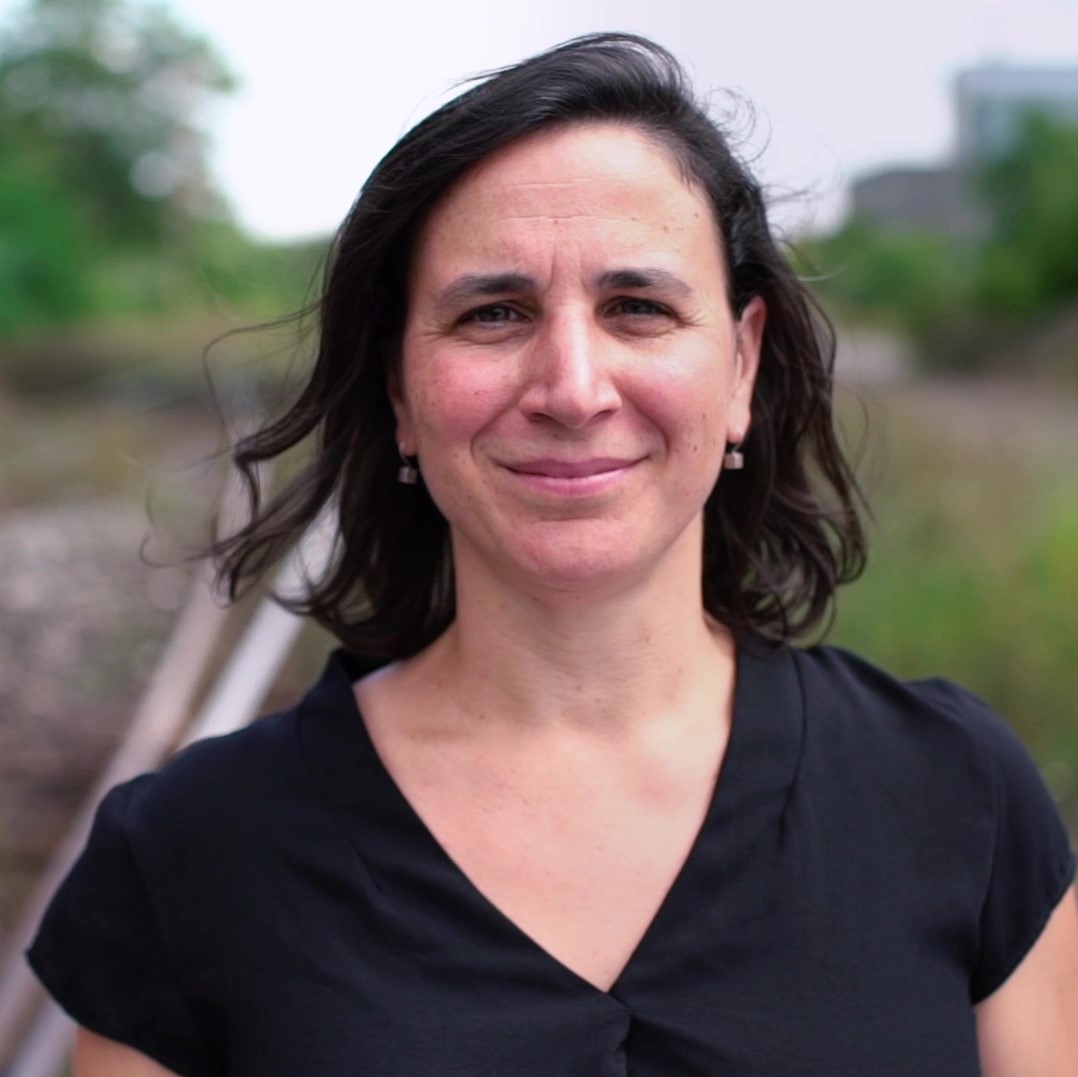
Fiona Kouyoumdjian
MD, MPH, PhD, FCFP, FRCPC
Assistant Professor
Research Director
Laura Cleghorn
Manager, Research
Laura Cleghorn has conducted research about the organization and delivery of health care in Ontario for over 15 years in the areas of home care, primary care, and cancer care, often focused on improving access to care for marginalized populations. Since 2016, Laura has been with the Department of Family Medicine in a role that supports the faculty and staff of the Research Enterprise to engage in high-quality research. Laura is also interested in cultivating a workplace culture that encourages personal and professional growth. When not at work, Laura can be found in arenas in the greater Hamilton area, enjoying her kids’ hockey and figure skating activities. Laura’s second favourite past-time is walking her dog in Cootes Paradise, in all seasons.
Bethany Elliott
BHSc, MPH
Administrative Director, David Braley Primary Care Research Collaborative
Bethany is the Administrative Director of the David Braley Primary Care Research Collaborative (PCRC). In this role, she supports the development and expansion of a network to explore important questions in primary care and amplify evidence to inform primary care practice, education, and health systems planning. Bethany has a Master of Public Health in health promotion and community development and prior to joining the PCRC worked in the public health sector in British Columbia and Ontario for over a decade. Through this work, Bethany collaborated regularly with health system partners, local and provincial governments and community organizations on projects ranging from health promotion and evaluation to health systems planning. Most recently, she provided strategic and operational support to the Hamilton COVID-19 Response Table – a collaborative table chaired by public health, primary care, and hospitals to prevent and respond to COVID-19 in Hamilton.

Bethany Elliott
BHSc, MPH
Administrative Director, David Braley Primary Care Research Collaborative
Fiona Kouyoumdjian
MD, MPH, PhD, FCFP, FRCPC
Assistant Professor
Research Director
Fiona Kouyoumdjian is a Family Physician, Public Health and Preventive Medicine Physician, and Epidemiologist. She received her BA with Honors from Brown University, her MD from Dalhousie University, her MPH from the Johns Hopkins Bloomberg School of Public Health, and her PhD in Epidemiology from the University of Toronto Dalla Lana School of Public Health. She completed residency training at the University of Toronto and a CIHR Fellowship at St. Michael’s Hospital.
Fiona leads a program of research focused on the health status and health care of people who experience imprisonment. Her specific research foci are decreasing imprisonment, improving health care and health promotion for people in prison, and supporting successful re-integration to the community for people on release from prison.
Fiona is also an Adjunct Scientist at ICES and an Associate Member in the Department of Health Research Methods, Evidence, and Impact at McMaster.
Fiona Kouyoumdjian
MD, MPH, PhD, FCFP, FRCPC
Assistant Professor
Research Director
Fiona Kouyoumdjian is a Family Physician, Public Health and Preventive Medicine Physician, and Epidemiologist. She received her BA with Honors from Brown University, her MD from Dalhousie University, her MPH from the Johns Hopkins Bloomberg School of Public Health, and her PhD in Epidemiology from the University of Toronto Dalla Lana School of Public Health. She completed residency training at the University of Toronto and a CIHR Fellowship at St. Michael’s Hospital.
Fiona leads a program of research focused on the health status and health care of people who experience imprisonment. Her specific research foci are decreasing imprisonment, improving health care and health promotion for people in prison, and supporting successful re-integration to the community for people on release from prison.
Fiona is also an Adjunct Scientist at ICES and an Associate Member in the Department of Health Research Methods, Evidence, and Impact at McMaster.
Laura Cleghorn
Manager, Research
Laura Cleghorn has conducted research about the organization and delivery of health care in Ontario for over 15 years in the areas of home care, primary care, and cancer care, often focused on improving access to care for marginalized populations. Since 2016, Laura has been with the Department of Family Medicine in a role that supports the faculty and staff of the Research Enterprise to engage in high-quality research. Laura is also interested in cultivating a workplace culture that encourages personal and professional growth. When not at work, Laura can be found in arenas in the greater Hamilton area, enjoying her kids’ hockey and figure skating activities. Laura’s second favourite past-time is walking her dog in Cootes Paradise, in all seasons.
Laura Cleghorn
Manager, Research
Laura Cleghorn has conducted research about the organization and delivery of health care in Ontario for over 15 years in the areas of home care, primary care, and cancer care, often focused on improving access to care for marginalized populations. Since 2016, Laura has been with the Department of Family Medicine in a role that supports the faculty and staff of the Research Enterprise to engage in high-quality research. Laura is also interested in cultivating a workplace culture that encourages personal and professional growth. When not at work, Laura can be found in arenas in the greater Hamilton area, enjoying her kids’ hockey and figure skating activities. Laura’s second favourite past-time is walking her dog in Cootes Paradise, in all seasons.
Bethany Elliott
BHSc, MPH
Administrative Director, David Braley Primary Care Research Collaborative
Bethany is the Administrative Director of the David Braley Primary Care Research Collaborative (PCRC). In this role, she supports the development and expansion of a network to explore important questions in primary care and amplify evidence to inform primary care practice, education, and health systems planning. Bethany has a Master of Public Health in health promotion and community development and prior to joining the PCRC worked in the public health sector in British Columbia and Ontario for over a decade. Through this work, Bethany collaborated regularly with health system partners, local and provincial governments and community organizations on projects ranging from health promotion and evaluation to health systems planning. Most recently, she provided strategic and operational support to the Hamilton COVID-19 Response Table – a collaborative table chaired by public health, primary care, and hospitals to prevent and respond to COVID-19 in Hamilton.
Bethany Elliott
BHSc, MPH
Administrative Director, David Braley Primary Care Research Collaborative
Bethany is the Administrative Director of the David Braley Primary Care Research Collaborative (PCRC). In this role, she supports the development and expansion of a network to explore important questions in primary care and amplify evidence to inform primary care practice, education, and health systems planning. Bethany has a Master of Public Health in health promotion and community development and prior to joining the PCRC worked in the public health sector in British Columbia and Ontario for over a decade. Through this work, Bethany collaborated regularly with health system partners, local and provincial governments and community organizations on projects ranging from health promotion and evaluation to health systems planning. Most recently, she provided strategic and operational support to the Hamilton COVID-19 Response Table – a collaborative table chaired by public health, primary care, and hospitals to prevent and respond to COVID-19 in Hamilton.
Health Services
Henry Siu
MSc, MD, CCFP (COE), FCFP
Associate Professor
Medical Director, Stonechurch Family Health Centre
Henry Siu completed his undergraduate medical training at the University of Toronto in 2008, and his residency training at McMaster University in 2010. He joined the department full time in 2013 and was promoted to the rank of Associate Professor in 2020.
His clinical interests include care of the elderly, especially those living in long-term care. He currently practices at Stonechurch Family Health Centre, and as an attending physician at a local long-term care home.
His current research endeavours involve research in long-term care including auditing advance care planning rates and assessing clinicians barriers to long-term care, implementing a new periodic health examination form, and implementing a tool to support informed consent and alignment of practices in LTC to the Ontario Health Care Consent Act. He has recently received funding from the Canadian Frailty Network and Health Canada to pursue his research interests and have published articles in various journals about his work in long-term care.
Special Interests: Care of the Elderly, Long-term care

Henry Siu
MSc, MD, CCFP (COE), FCFP
Associate Professor
Medical Director, Stonechurch Family Health Centre
Barb Flaherty
Clinic Director, SFHC; McMaster FHT Co-Executive Director
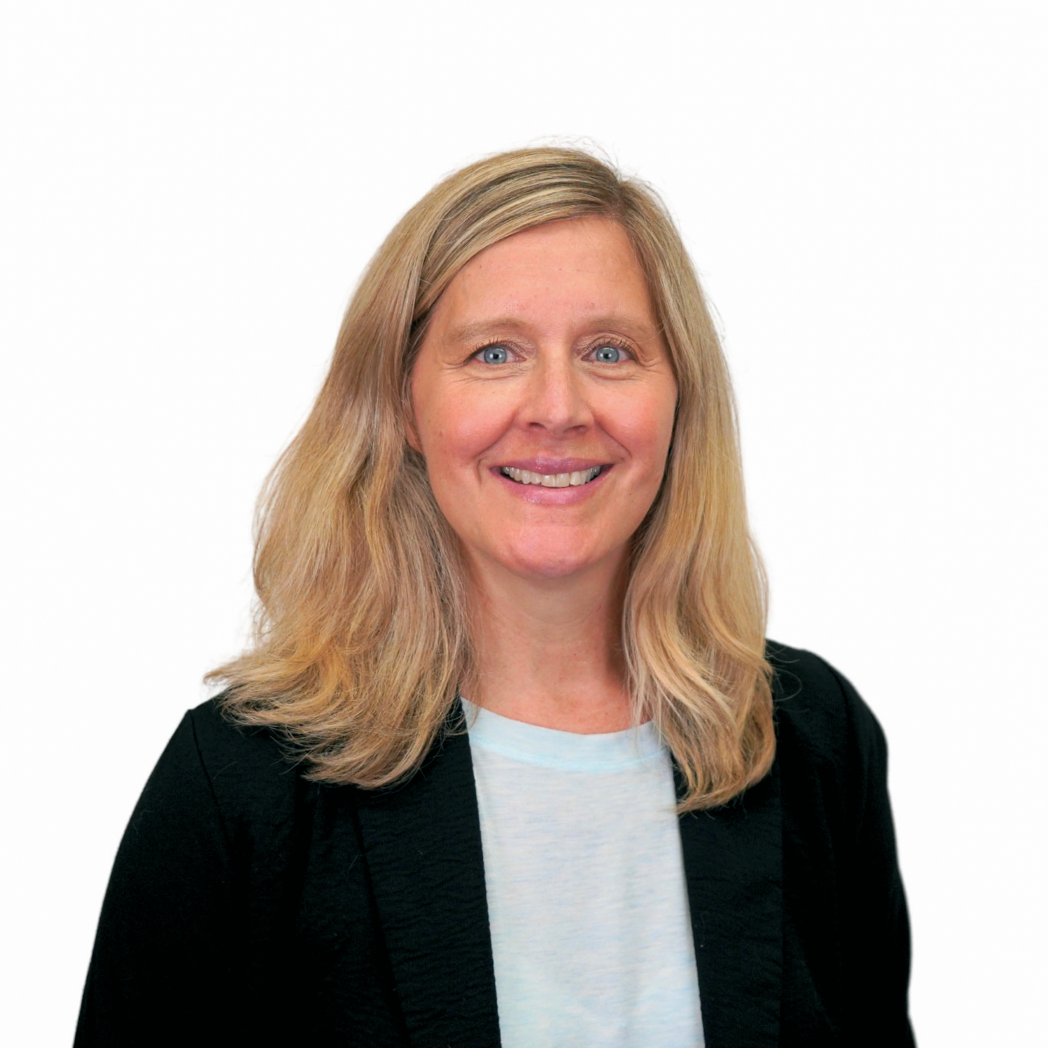
Barb Flaherty
Clinic Director, SFHC; McMaster FHT Co-Executive Director
Doug Oliver
BSc, MSc, MD, CCFP
Associate Professor
Medical Director, McMaster Family Practice
Dr. Oliver is an Associate Professor in the Department of Family Medicine at McMaster University.
He joined the Department in 2004 and took on a full-time faculty position in 2007.
Dr. Oliver’s passion for elder care lead him to take on the position as Care of the Elderly Curriculum Coordinator from 2006 – 2015. This role allowed him to develop many innovative programs for the Department, including a Long Term Care clinical rotation for residents and a successful annual CME event entitled “Care of the Elderly: Perspectives for Primary Care”. His clinical commitment to this patient population continues with weekly nursing home rounds and house-calls to frail elderly patients.
He is also co-PI on Health Tapestry, a multi-year, multi-site primary care based intervention aimed at promoting optimal aging in community dwelling older adults. Dr. Oliver’s interest in improving access for patients in primary care resulted in study and co-development of an Advanced Access booking model in the McMaster Family Health Team. This model allows patients better access to their primary care team by having the majority of booking spots available for same day appointments.
Dr. Oliver is the Principle Investigator on a research project designed to better understand how and why patients make the choices they do, when calling in to book an appointment with their family doctor. On the academic front, Dr. Oliver is assisting the Department with several educational leadership roles including Co-Education Coordinator at McMaster Family Practice (2011-16), Hamilton Site Director and CBRT Education Coordinator (2012-2013) and Behavioural Sciences Co-Coordinator (2013-).
Dr. Oliver has held several academic leadership roles in the last few years, including Education Coordinator at MFP (2011-16), MHBS Curriculum Coordinator (2013-2019) and is currently the Medical Director at McMaster Family Practice (2016-present)”
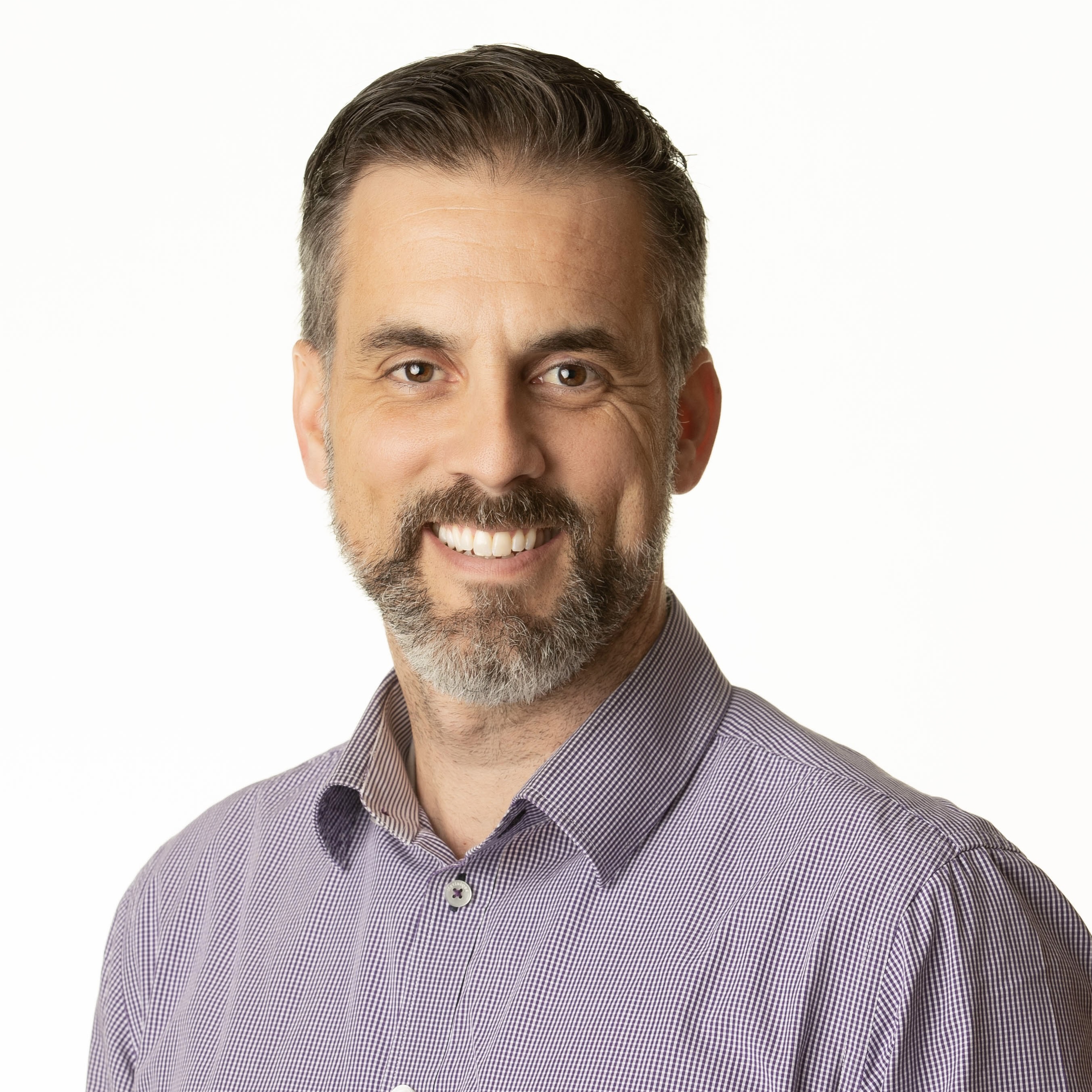
Doug Oliver
BSc, MSc, MD, CCFP
Associate Professor
Medical Director, McMaster Family Practice
Jill Berridge
BA (Hons) PE, BHSc (Hons) PT
Program Director, Health Services; Clinic Director, MFP and McMaster FHT Co-Executive Director
Assistant Clinical Professor (Adjunct)
Jill has spent the past 20 years working as a Physiotherapist, Manager, Director and Consultant in multidisciplinary healthcare settings, in private and public sectors, in Canada and internationally. Jill has worked with the Department since 2013, and has enjoyed the challenge of developing her new role as Clinic Director at McMaster Family Practice.
Jill lives in Brantford with her husband and two boys. She enjoys volunteering with local groups and charities and sits on several different Boards, assisting in managing several different fundraising events. She and a small team raise thousands of dollars for cancer research each year as a special hobby. Other interests include spending time with family and friends, traveling, renovating old homes, reading and her book clubs.
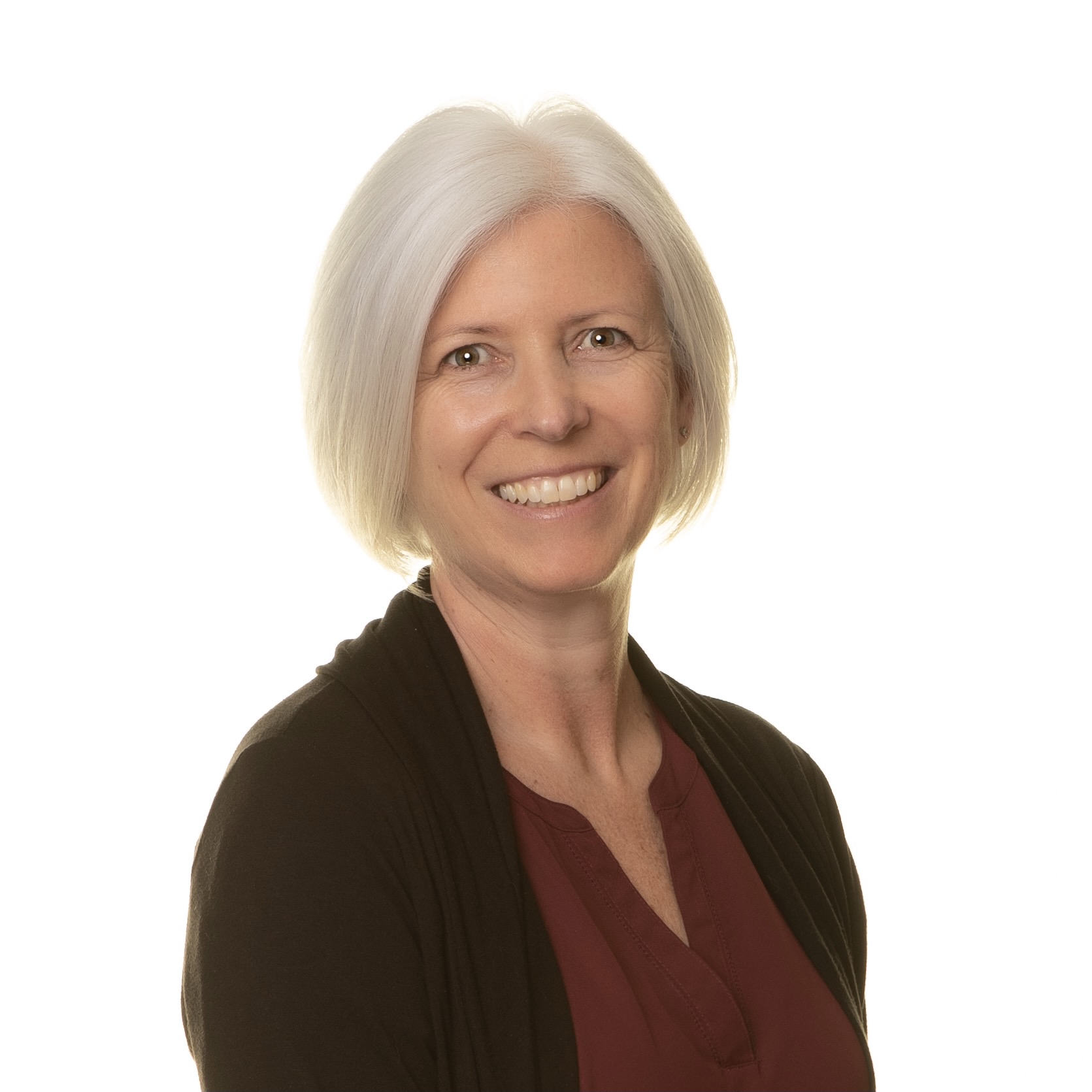
Jill Berridge
BA (Hons) PE, BHSc (Hons) PT
Program Director, Health Services; Clinic Director, MFP and McMaster FHT Co-Executive Director
Assistant Clinical Professor (Adjunct)
Amie Davis
MD, CCFP, FCFP
Associate Professor
Postgraduate Curriculum Director;
Medical Director, Maternity Centre of Hamilton
Dr. Amie Davis is a family physician in the Department of Family Medicine. For the first half of her career, she practiced community-based comprehensive family medicine which included adult inpatient, obstetrical, palliative and outpatient care. She was also the inaugural site director for the Halton Postgraduate Family Medicine residency site. Her work in medical education has allowed her to contribute in the roles of Site Director at many of the McMaster sites including Halton, Niagara and Hamilton. She is currently the Curriculum Director in the postgraduate Family Medicine program with a special interest in entrustment, competency-based learning and curriculum design. She became a full-time faculty member in 2019, and her family practice is located at Stonechurch Family Health centre where her special interests include delivering and teaching gender-affirming primary care, obstetrical care and women’s health. She is the current medical director of the Maternity Centre of Hamilton, where she participates in the collaborative model of expert family medicine obstetrical providers who provide antepartum, intrapartum and postpartum care to pregnant patients with a special expertise in providing care for pregnant people who may be socially at risk.
Special Interests: Family Medicine Obstetrical Care, Gender Affirming Primary Care, Medical Education.
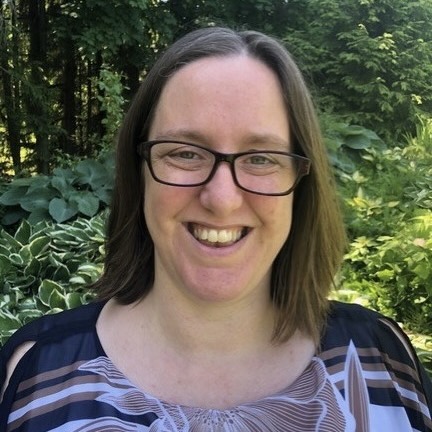
Amie Davis
MD, CCFP, FCFP
Associate Professor
Postgraduate Curriculum Director;
Medical Director, Maternity Centre of Hamilton
Claudia Steffler
BScN, PHC-NP
Clinic Director, Nurse Practitioner
Assistant Clinical Professor
Claudia Steffler is an Associate Clinical Professor in the Department of Family Medicine at McMaster University. She joined the Department in 2001 as a primary care nurse practitioner and was instrumental in the program design and development of the Maternity Centre of Hamilton. Claudia helped to build the multidisciplinary team at the Maternity Centre and establish long term partnerships with community stakeholders to support marginalized families in Hamilton.
Her clinical interests include family medicine obstetrics, perinatal substance use and understanding the non-medical factors that influence health. Claudia’s passion for advocacy and addressing health inequities has led to many innovative programs aimed at addressing the unfair and avoidable differences in healthcare access for vulnerable populations.
Claudia has been the clinic director of the Maternity Centre of Hamilton since 2010, splitting her time between administration, clinical practice, and medical education.
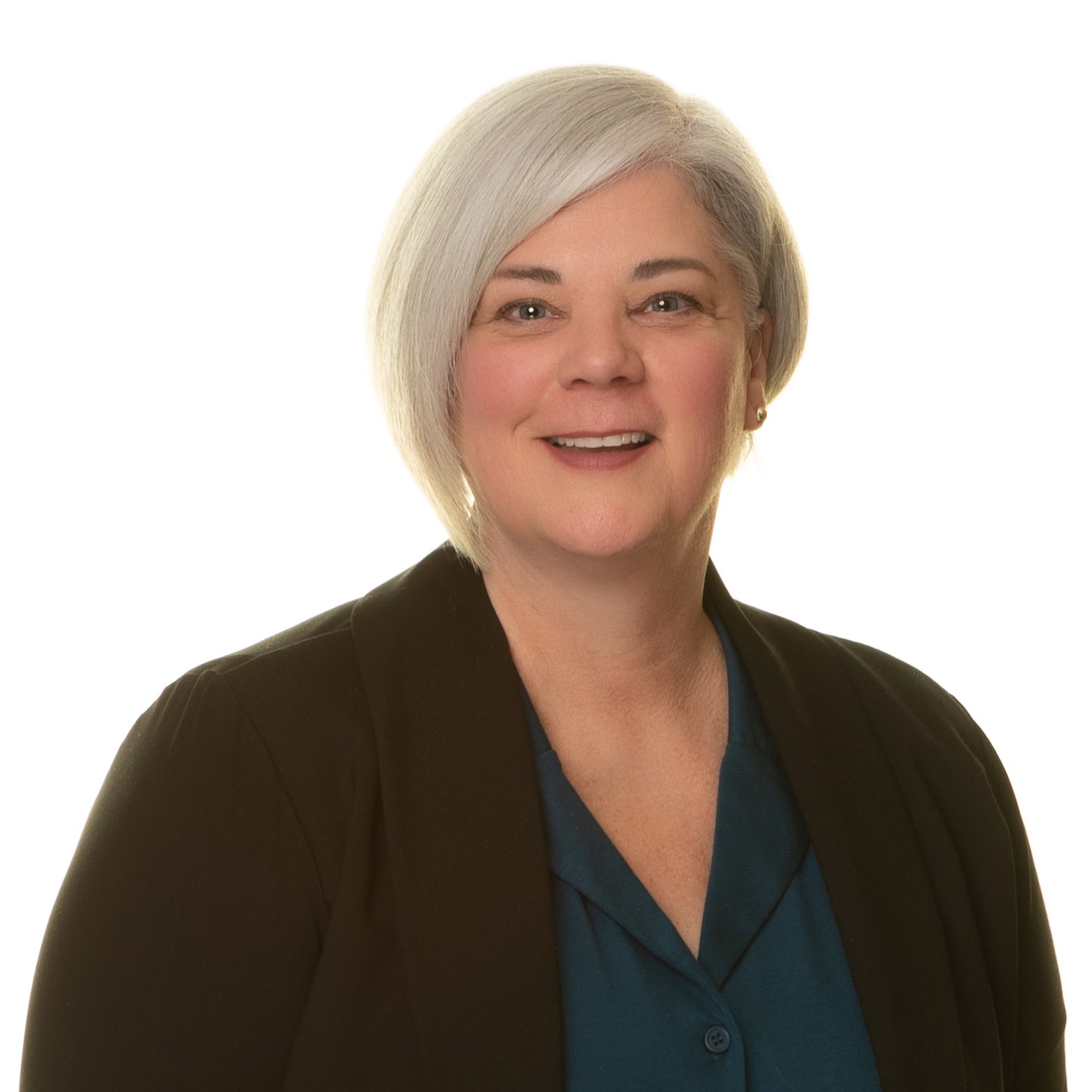
Claudia Steffler
BScN, PHC-NP
Clinic Director, Nurse Practitioner
Assistant Clinical Professor
Henry Siu
MSc, MD, CCFP (COE), FCFP
Associate Professor
Medical Director, Stonechurch Family Health Centre
Henry Siu completed his undergraduate medical training at the University of Toronto in 2008, and his residency training at McMaster University in 2010. He joined the department full time in 2013 and was promoted to the rank of Associate Professor in 2020.
His clinical interests include care of the elderly, especially those living in long-term care. He currently practices at Stonechurch Family Health Centre, and as an attending physician at a local long-term care home.
His current research endeavours involve research in long-term care including auditing advance care planning rates and assessing clinicians barriers to long-term care, implementing a new periodic health examination form, and implementing a tool to support informed consent and alignment of practices in LTC to the Ontario Health Care Consent Act. He has recently received funding from the Canadian Frailty Network and Health Canada to pursue his research interests and have published articles in various journals about his work in long-term care.
Special Interests: Care of the Elderly, Long-term care
Henry Siu
MSc, MD, CCFP (COE), FCFP
Associate Professor
Medical Director, Stonechurch Family Health Centre
Henry Siu completed his undergraduate medical training at the University of Toronto in 2008, and his residency training at McMaster University in 2010. He joined the department full time in 2013 and was promoted to the rank of Associate Professor in 2020.
His clinical interests include care of the elderly, especially those living in long-term care. He currently practices at Stonechurch Family Health Centre, and as an attending physician at a local long-term care home.
His current research endeavours involve research in long-term care including auditing advance care planning rates and assessing clinicians barriers to long-term care, implementing a new periodic health examination form, and implementing a tool to support informed consent and alignment of practices in LTC to the Ontario Health Care Consent Act. He has recently received funding from the Canadian Frailty Network and Health Canada to pursue his research interests and have published articles in various journals about his work in long-term care.
Special Interests: Care of the Elderly, Long-term care
Barb Flaherty
Clinic Director, SFHC; McMaster FHT Co-Executive Director
Barb Flaherty
Clinic Director, SFHC; McMaster FHT Co-Executive Director
Doug Oliver
BSc, MSc, MD, CCFP
Associate Professor
Medical Director, McMaster Family Practice
Dr. Oliver is an Associate Professor in the Department of Family Medicine at McMaster University.
He joined the Department in 2004 and took on a full-time faculty position in 2007.
Dr. Oliver’s passion for elder care lead him to take on the position as Care of the Elderly Curriculum Coordinator from 2006 – 2015. This role allowed him to develop many innovative programs for the Department, including a Long Term Care clinical rotation for residents and a successful annual CME event entitled “Care of the Elderly: Perspectives for Primary Care”. His clinical commitment to this patient population continues with weekly nursing home rounds and house-calls to frail elderly patients.
He is also co-PI on Health Tapestry, a multi-year, multi-site primary care based intervention aimed at promoting optimal aging in community dwelling older adults. Dr. Oliver’s interest in improving access for patients in primary care resulted in study and co-development of an Advanced Access booking model in the McMaster Family Health Team. This model allows patients better access to their primary care team by having the majority of booking spots available for same day appointments.
Dr. Oliver is the Principle Investigator on a research project designed to better understand how and why patients make the choices they do, when calling in to book an appointment with their family doctor. On the academic front, Dr. Oliver is assisting the Department with several educational leadership roles including Co-Education Coordinator at McMaster Family Practice (2011-16), Hamilton Site Director and CBRT Education Coordinator (2012-2013) and Behavioural Sciences Co-Coordinator (2013-).
Dr. Oliver has held several academic leadership roles in the last few years, including Education Coordinator at MFP (2011-16), MHBS Curriculum Coordinator (2013-2019) and is currently the Medical Director at McMaster Family Practice (2016-present)”
Doug Oliver
BSc, MSc, MD, CCFP
Associate Professor
Medical Director, McMaster Family Practice
Dr. Oliver is an Associate Professor in the Department of Family Medicine at McMaster University.
He joined the Department in 2004 and took on a full-time faculty position in 2007.
Dr. Oliver’s passion for elder care lead him to take on the position as Care of the Elderly Curriculum Coordinator from 2006 – 2015. This role allowed him to develop many innovative programs for the Department, including a Long Term Care clinical rotation for residents and a successful annual CME event entitled “Care of the Elderly: Perspectives for Primary Care”. His clinical commitment to this patient population continues with weekly nursing home rounds and house-calls to frail elderly patients.
He is also co-PI on Health Tapestry, a multi-year, multi-site primary care based intervention aimed at promoting optimal aging in community dwelling older adults. Dr. Oliver’s interest in improving access for patients in primary care resulted in study and co-development of an Advanced Access booking model in the McMaster Family Health Team. This model allows patients better access to their primary care team by having the majority of booking spots available for same day appointments.
Dr. Oliver is the Principle Investigator on a research project designed to better understand how and why patients make the choices they do, when calling in to book an appointment with their family doctor. On the academic front, Dr. Oliver is assisting the Department with several educational leadership roles including Co-Education Coordinator at McMaster Family Practice (2011-16), Hamilton Site Director and CBRT Education Coordinator (2012-2013) and Behavioural Sciences Co-Coordinator (2013-).
Dr. Oliver has held several academic leadership roles in the last few years, including Education Coordinator at MFP (2011-16), MHBS Curriculum Coordinator (2013-2019) and is currently the Medical Director at McMaster Family Practice (2016-present)”
Jill Berridge
BA (Hons) PE, BHSc (Hons) PT
Program Director, Health Services; Clinic Director, MFP and McMaster FHT Co-Executive Director
Assistant Clinical Professor (Adjunct)
Jill has spent the past 20 years working as a Physiotherapist, Manager, Director and Consultant in multidisciplinary healthcare settings, in private and public sectors, in Canada and internationally. Jill has worked with the Department since 2013, and has enjoyed the challenge of developing her new role as Clinic Director at McMaster Family Practice.
Jill lives in Brantford with her husband and two boys. She enjoys volunteering with local groups and charities and sits on several different Boards, assisting in managing several different fundraising events. She and a small team raise thousands of dollars for cancer research each year as a special hobby. Other interests include spending time with family and friends, traveling, renovating old homes, reading and her book clubs.
Jill Berridge
BA (Hons) PE, BHSc (Hons) PT
Program Director, Health Services; Clinic Director, MFP and McMaster FHT Co-Executive Director
Assistant Clinical Professor (Adjunct)
Jill has spent the past 20 years working as a Physiotherapist, Manager, Director and Consultant in multidisciplinary healthcare settings, in private and public sectors, in Canada and internationally. Jill has worked with the Department since 2013, and has enjoyed the challenge of developing her new role as Clinic Director at McMaster Family Practice.
Jill lives in Brantford with her husband and two boys. She enjoys volunteering with local groups and charities and sits on several different Boards, assisting in managing several different fundraising events. She and a small team raise thousands of dollars for cancer research each year as a special hobby. Other interests include spending time with family and friends, traveling, renovating old homes, reading and her book clubs.
Amie Davis
MD, CCFP, FCFP
Associate Professor
Postgraduate Curriculum Director;
Medical Director, Maternity Centre of Hamilton
Dr. Amie Davis is a family physician in the Department of Family Medicine. For the first half of her career, she practiced community-based comprehensive family medicine which included adult inpatient, obstetrical, palliative and outpatient care. She was also the inaugural site director for the Halton Postgraduate Family Medicine residency site. Her work in medical education has allowed her to contribute in the roles of Site Director at many of the McMaster sites including Halton, Niagara and Hamilton. She is currently the Curriculum Director in the postgraduate Family Medicine program with a special interest in entrustment, competency-based learning and curriculum design. She became a full-time faculty member in 2019, and her family practice is located at Stonechurch Family Health centre where her special interests include delivering and teaching gender-affirming primary care, obstetrical care and women’s health. She is the current medical director of the Maternity Centre of Hamilton, where she participates in the collaborative model of expert family medicine obstetrical providers who provide antepartum, intrapartum and postpartum care to pregnant patients with a special expertise in providing care for pregnant people who may be socially at risk.
Special Interests: Family Medicine Obstetrical Care, Gender Affirming Primary Care, Medical Education.
Amie Davis
MD, CCFP, FCFP
Associate Professor
Postgraduate Curriculum Director;
Medical Director, Maternity Centre of Hamilton
Dr. Amie Davis is a family physician in the Department of Family Medicine. For the first half of her career, she practiced community-based comprehensive family medicine which included adult inpatient, obstetrical, palliative and outpatient care. She was also the inaugural site director for the Halton Postgraduate Family Medicine residency site. Her work in medical education has allowed her to contribute in the roles of Site Director at many of the McMaster sites including Halton, Niagara and Hamilton. She is currently the Curriculum Director in the postgraduate Family Medicine program with a special interest in entrustment, competency-based learning and curriculum design. She became a full-time faculty member in 2019, and her family practice is located at Stonechurch Family Health centre where her special interests include delivering and teaching gender-affirming primary care, obstetrical care and women’s health. She is the current medical director of the Maternity Centre of Hamilton, where she participates in the collaborative model of expert family medicine obstetrical providers who provide antepartum, intrapartum and postpartum care to pregnant patients with a special expertise in providing care for pregnant people who may be socially at risk.
Special Interests: Family Medicine Obstetrical Care, Gender Affirming Primary Care, Medical Education.
Claudia Steffler
BScN, PHC-NP
Clinic Director, Nurse Practitioner
Assistant Clinical Professor
Claudia Steffler is an Associate Clinical Professor in the Department of Family Medicine at McMaster University. She joined the Department in 2001 as a primary care nurse practitioner and was instrumental in the program design and development of the Maternity Centre of Hamilton. Claudia helped to build the multidisciplinary team at the Maternity Centre and establish long term partnerships with community stakeholders to support marginalized families in Hamilton.
Her clinical interests include family medicine obstetrics, perinatal substance use and understanding the non-medical factors that influence health. Claudia’s passion for advocacy and addressing health inequities has led to many innovative programs aimed at addressing the unfair and avoidable differences in healthcare access for vulnerable populations.
Claudia has been the clinic director of the Maternity Centre of Hamilton since 2010, splitting her time between administration, clinical practice, and medical education.
Claudia Steffler
BScN, PHC-NP
Clinic Director, Nurse Practitioner
Assistant Clinical Professor
Claudia Steffler is an Associate Clinical Professor in the Department of Family Medicine at McMaster University. She joined the Department in 2001 as a primary care nurse practitioner and was instrumental in the program design and development of the Maternity Centre of Hamilton. Claudia helped to build the multidisciplinary team at the Maternity Centre and establish long term partnerships with community stakeholders to support marginalized families in Hamilton.
Her clinical interests include family medicine obstetrics, perinatal substance use and understanding the non-medical factors that influence health. Claudia’s passion for advocacy and addressing health inequities has led to many innovative programs aimed at addressing the unfair and avoidable differences in healthcare access for vulnerable populations.
Claudia has been the clinic director of the Maternity Centre of Hamilton since 2010, splitting her time between administration, clinical practice, and medical education.
Indigenous Health
The McMaster University Department of Family Medicine is committed to healing and strengthening relationship with Indigenous Peoples and communities, to ensuring all aspects of our work are culturally safe and reflect awareness of Indigenous history and experience, and to living in accordance with the Two-Row Wampum Agreement and the core principle of “nothing about us without us”. This commitment is expressed in many ways, guided by Indigenous faculty members in DFM and colleagues in the Indigenous Health Learning Lodge of the Faculty of Health Sciences (IHLL). Some examples include:
Information Box Group
Indigenous Teaching Through Art Program
We have offered an experiential learning program that was co-designed and co-delivered by Indigenous and settler faculty members in DFM to all staff and full-time faculty. The program’s purpose is to share knowledge about Indigenous history and experience in Southern Ontario and Canada as one step on the journey of truth and reconciliation.
Creation of Leadership Structure and Roles for Indigenous Health in DFM
Through strengthening relationship between DFM and IHLL, and with leadership from Dr. Karen Hill, we are co-creating terms of reference for an Indigenous Health Committee in DFM, with two key leadership roles to lead Indigenous Health in the department (Indigenous Health Knowledge Carrier and Indigenous Health Steward).
Indigenous-led Culture of Safety Circles in Curriculum
We are offering family medicine residents the opportunity to have a direct experience of the circle process that is a central Indigenous practice, facilitated by Dr. Karen Hill with a focus on cultural safety.
Information Box Group
Indigenous Health Fund
DFM has invested $1,000,000 in an endowment to support Indigenous Health priorities defined and overseen by the DFM Indigenous Health Committee in collaboration with the IHLL. The endowment in perpetuity signals DFM’s unwavering and unchanging commitment to the full journey of reconciliation, and to returning to relationship with Indigenous Peoples in alignment with the Two-Row Wampum. Initial priorities for the fund are:
- integration of Indigenous wisdom and ways into primary care;
- enabling DFM services and programs to fulfill commitment to truth and reconciliation, and to reflect the Two-Row Wampum agreement in words, processes and actions; and
- leadership and support for the emerging role of the Indigenous primary care physician, including sustainability.
Collaboration and Allyship with Indigenous Leaders of Biindigen Well-Being Centre
We are in relationship with leaders of De dwa da dehs nye>s Aboriginal Health Centre (“DAHC”), Niwasa Kendaaswin Teg and Ontario Aboriginal Housing Services to support realization of their vision for transformative Indigenous health and community services. We are also joining with DAHC in co-creating an integrated primary care clinic serving Indigenous People as well as settler members of the surrounding community, and will jointly govern the clinic in accordance with the Two-Row Wampum Agreement and the Dish With One Spoon Wampum Agreement.
Indigenous Health Learning Lodge Learn More
The Indigenous Health Learning Lodge (IHLL) works alongside the Faculty of Health Sciences towards creating a learning environment that is culturally safe – working with humility to enable sustainable systems of change and to advance the work around the concepts of truth, reconciliation, and anti-colonization embracing all aspects of Indigenous health and well-being.
Equity, Diversity & Inclusion
The Department of Family Medicine is committed to working through an EDI (equity, diversity, and inclusion), ARAO (anti-racism & anti-oppression) and Indigenous reconciliations lens. We aim to create and sustain a culture that values diverse interests, needs lived experiences and social identities across equity-deserving communities. In partnership with our leadership, department members and the broader community, we champion a collective effort towards a cultural shift that embraces disruption and dismantling of systems and structures of oppression. This work is lead and enabled by our full-time EDI and Anti-Racism Partner, a role we established in 2021 in collaboration with McMaster’s Equity and Inclusion Office.
We strongly value interdisciplinary collaboration across the department and continue working towards fostering an environment where all our staff, faculty and learners are active agents of transformative change. Through our policies, practices, and programs we have made significant efforts in embedding equity, diversity and inclusion at every level and domain of the department.
In 2021-22, we had 750 attendees for 12 educational events, workshops, and training across the department. We prioritized the facilitation of learning and unlearning opportunities and continue to develop innovative, action-oriented approaches to education and training. Our department also challenged ourselves when reviewing the CaRMS process and implemented the first EDI-specific question within our interview stations. Training 242 file reviewers and interviewers on implicit bias, we impacted 626 applicants in our 2022 CaRMS process.
Department of Family Medicine
Anti-Racism Collaborative Learn More
The DFM Anti-Racism Collaborative (ARC) is a community of practice that aims to sustain a safe, brave and inclusive environment for all Indigenous, Black and racialized folks within and outside of the department.
Anti-Racism Collaborative - Learn More
The DFM Anti-Racism Collaborative (ARC) is a community of practice that aims to sustain a safe, brave and inclusive environment for all Indigenous, Black and racialized folks within and outside of the department. With a commitment to working within an anti-oppressive and anti-racist framework, the ARC prioritizes 5 core pillars: consultation, advocacy, outreach, education and evaluation. Working with leadership, department members and the community, the ARC supports, guides and leads collective efforts toward a cultural shift that embraces disruption and dismantling of systems and structures of oppression.
The ARC provides a safe and accountable space to raise concerns, issues and experiences of racism and to center the voices and lived experiences of Indigenous, Black and racialized staff, faculty and learners across the Department of Family Medicine. A core objective of this group is to advocate for increased diversity at all levels and to explore how DFM can address the wider issue of racism in medicine, while working with non-racialized department members to provide education and training for all DFM members to foster an anti-racism culture.
Racialized Community of Support Learn More
The Racialized Community of Support (RCS) is a support space for all self-identifying Indigenous, Black and/or racialized staff and faculty.
Racialized Community of Support - Learn More
The Racialized Community of Support (RCS) is a support space for all self-identifying Indigenous, Black and/or racialized staff and faculty. This support space exists in response to the heavy burden that many Indigenous, Black and/or racialized faculty and staff carry from the marginalization, isolation and under-representation often felt when navigating both professional and personal spaces. It seeks to be a space for members to alleviate the mental, physical and emotional strain that derives from burnout and cultural taxation.
This group aims to provide confidential peer support to Indigenous, Black and/or racialized faculty and staff in a safe and respectful environment. This may take the shape of sharing lived experiences, expressing concerns and needs, identifying challenges faced, confiding about incidents of racism, seeking advice and peer support, or building a community of trust and understanding. Through these processes, members may develop skills and language to help navigate the daily experiences of being a Black, Indigenous and/or racialized member of a historically white, colonial space and in turn foster both collective and individual well-being and a sense of belonging.
Mentoring for Inclusive Excellence (In Progress) Learn More
The Mentoring for Inclusive Excellence program aims to provide the support, guidance and facilitation faculty require to develop and maintain a professional identity while successfully navigating and advancing on their career path.
Mentoring for Inclusive Excellence (In Progress) - Learn More
There is growing recognition of the importance and need for diversity at all levels of academic medicine. Unfortunately, differential attainment of equity deserving individuals, particularly those who are Indigenous, Black and/or racialized, remains a significant barrier to achieving this goal. Intentional and skilled mentorship is a key protective factor that can help racialized and other equity deserving faculty advance in their careers at the benefit of both the individual and the organization.
The Mentoring for Inclusive Excellence program aims to provide the support, guidance and facilitation faculty require to develop and maintain a professional identity while successfully navigating and advancing on their career path. By grounding training for mentors in anti-racism and anti-oppression principles, the program aspires to foster inclusive excellence at all levels of the department. The aim of the program is to support all junior and mid-level faculty along the continuum of their academic journey, facilitate career development, motivate and enhance teaching, scholarly and leadership competencies and provide a road map for the mentee to guide their continuing professional development.
Multi-Faith Space
A consultation process is currently underway to inform the creation of a Multi-Faith Space at our main site – David Braley Health Sciences Centre. The hope is for this to be a space for folks across all religious and spiritual faith backgrounds to comfortably and respectfully engage in prayer, reflection, meditation etc., throughout the work day as needed.
Faculty of Health Sciences
Equity, Diversity, Inclusion and Indigenous Reconciliation Committee (EDI-IRC)
The (FHS) EDI-IRC is one of the faculty’s strategies to advance Inclusive Excellence. Its mandate is to highlight and dismantle oppressive and inequitable institutional practices and policies which, although often invisible, serve to reinforce inequities and impede inclusive excellence. The Committee’s membership consists of Indigenous and non-Indigenous staff, learners and faculty who believe that critical allyship, both personal and institutional, are fundamental to the advancement of Inclusive Excellence within the FHS. The Committee serves to advise the Dean and Vice-President, FHS and senior leadership within the Faculty of Health Sciences on related EDI and Indigenous equity concepts, issues and initiatives within the faculty.
Information Box Group
McMaster University
Equity & Inclusion Office Learn More
The Equity and Inclusion Office (EIO) is a central resource where expertise is proactively drawn upon by administrators, faculty, staff, and students: to advance unit-specific and institutional equity, diversity, inclusion, and accessibility goals; to enact inclusive excellence principles; and to establish respectful living, learning, and working environments that are free from harassment and discrimination, and sexual violence including through timely and procedurally fair investigative and alternative dispute resolution processes.
Equity & Inclusion Office - Learn More
The EIO provides programs and services accessible to all students, staff and faculty in the following areas:
- Human Rights and Dispute Resolution
- Inclusion and Anti-Racism Education
- Accessibility Program
- Sexual Violence and Prevention Response
To learn more about the EIO: https://equity.mcmaster.ca/
African-Caribbean Faculty Association of McMaster University Learn More
The African-Caribbean Faculty Association of McMaster University (ACFAM) was founded in 2010 as a response to the increasing diversity among the student population, recognizing that students from diverse equity-deserving groups benefit greatly and have a richer educational experience by having a diverse complement of instructors. This faculty association acts as both a professional network and a community of support for self-identifying Black faculty members and provides a coaching and development program for incoming Black scholars called Thrive.
African-Caribbean Faculty Association of McMaster University - Learn More
ACFAM’s objectives also include:
- Raising awareness about the shortage of Black academics at McMaster and other Canadian universities and encourage hiring faculty of Black and other diverse communities.
- Providing an organizational base for networking, promotion and advancement of Black academics at McMaster
- Fostering academic and research collaborations among our members
- Mentoring and supporting Black undergraduate and graduate students at McMaster.
To learn more about ACFAM: https://acfam.mcmaster.ca/
Employment Resource Group for Black, Indigenous, and Racialized Staff Learn More
The Employment Resource Group (ERG) for Black, Indigenous, and Racialized Staff (BIRS), is open to any McMaster staff member who identifies as a member of a Black, Indigenous and/or Racialized community. It has been established to contribute to mutually beneficial individual and institutional goals.
Employment Resource Group for Black, Indigenous, and Racialized Staff - Learn More
Individual:
- Improve relationships and coalition building opportunities within and across staff communities.
- Amplify the voices of staff members in relation to issues and needs elevated for institutional attention.
- Support the acquisition of knowledge, skills, confidence, and networks to facilitate staff career growth.
- Increase staff awareness of and ability to navigate institutional.
Institutional:
- Increase the sense of connectedness, belonging and empowerment reported by staff.
- Improve institutional awareness of staff experiences and responsiveness to staff issues.
- Offer more race-conscious professional development and leadership advancement opportunities.
- Enhance organizational strategy alignment with anti-racist principles and practices.
President’s Advisory Committee on Building an Inclusive Community Learn More
The President’s Advisory Committee on Building an Inclusive Community (PACBIC) identifies and anticipates issues affecting equity-seeking communities (including but not limited to members of racialized communities, newcomers and refugees, members of diverse faith communities, persons with disabilities, 2SLGBTQ+-identified individuals and women) both within the University and relevant to those seeking access to the University, and advise the President on such issues. PACBIC will be referring to the Indigenous Education Council (IEC) for direction on First Nations, Métis and Inuit (FNMI) issues.
Newsletters and Publications
We have several regular publications that highlight our people, expertise and the impact we have within our communities. If you have ideas for publications that you’d like to see, please don’t hesitate to contact us.
Status Reports
Department of Family Medicine Status Report 2006-2021 | Status Report Presentation Slides
Annual Reports
DFM Weekly Newsletters
December
November
October
September
August
July
June
May
April
March
February
January


